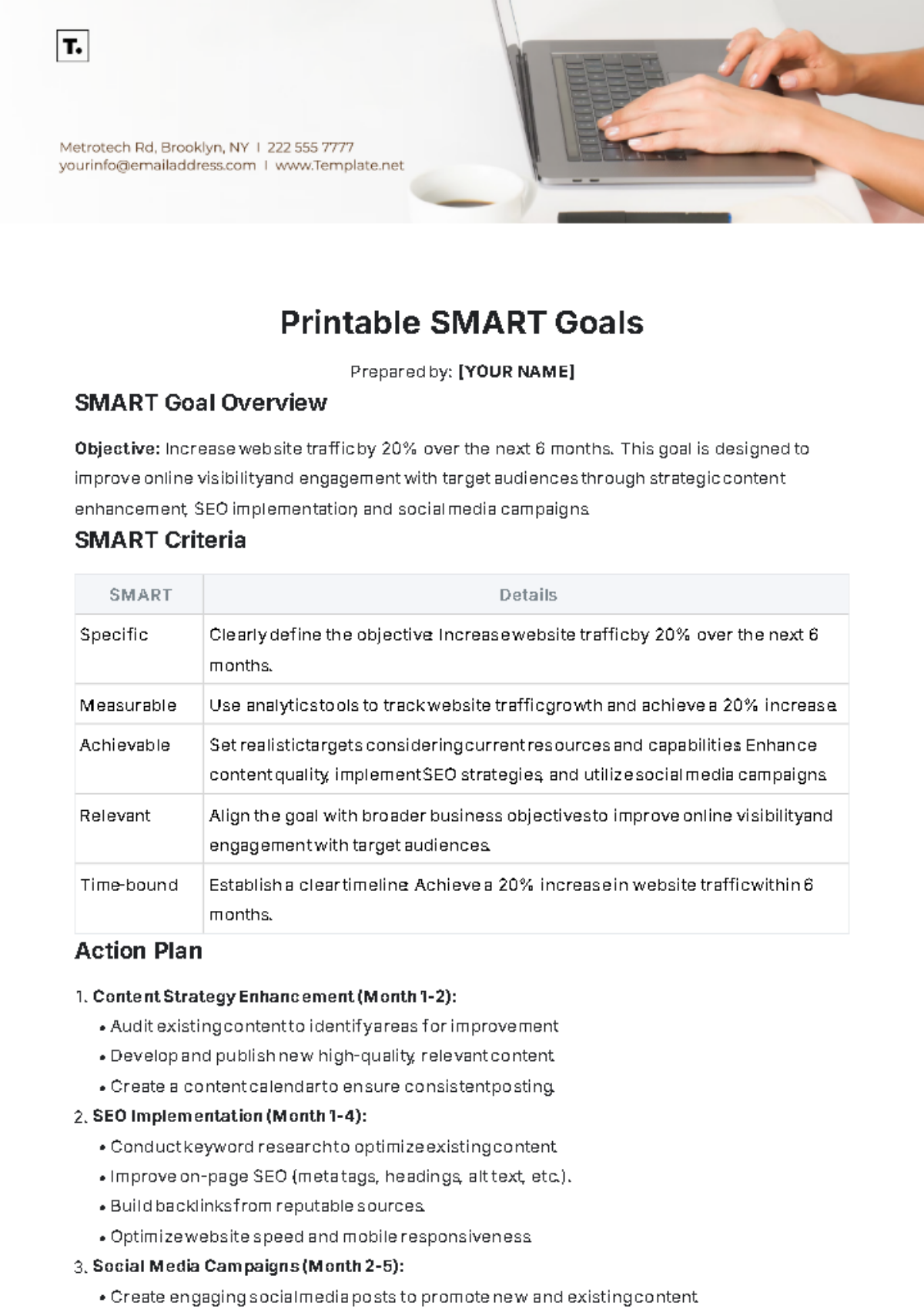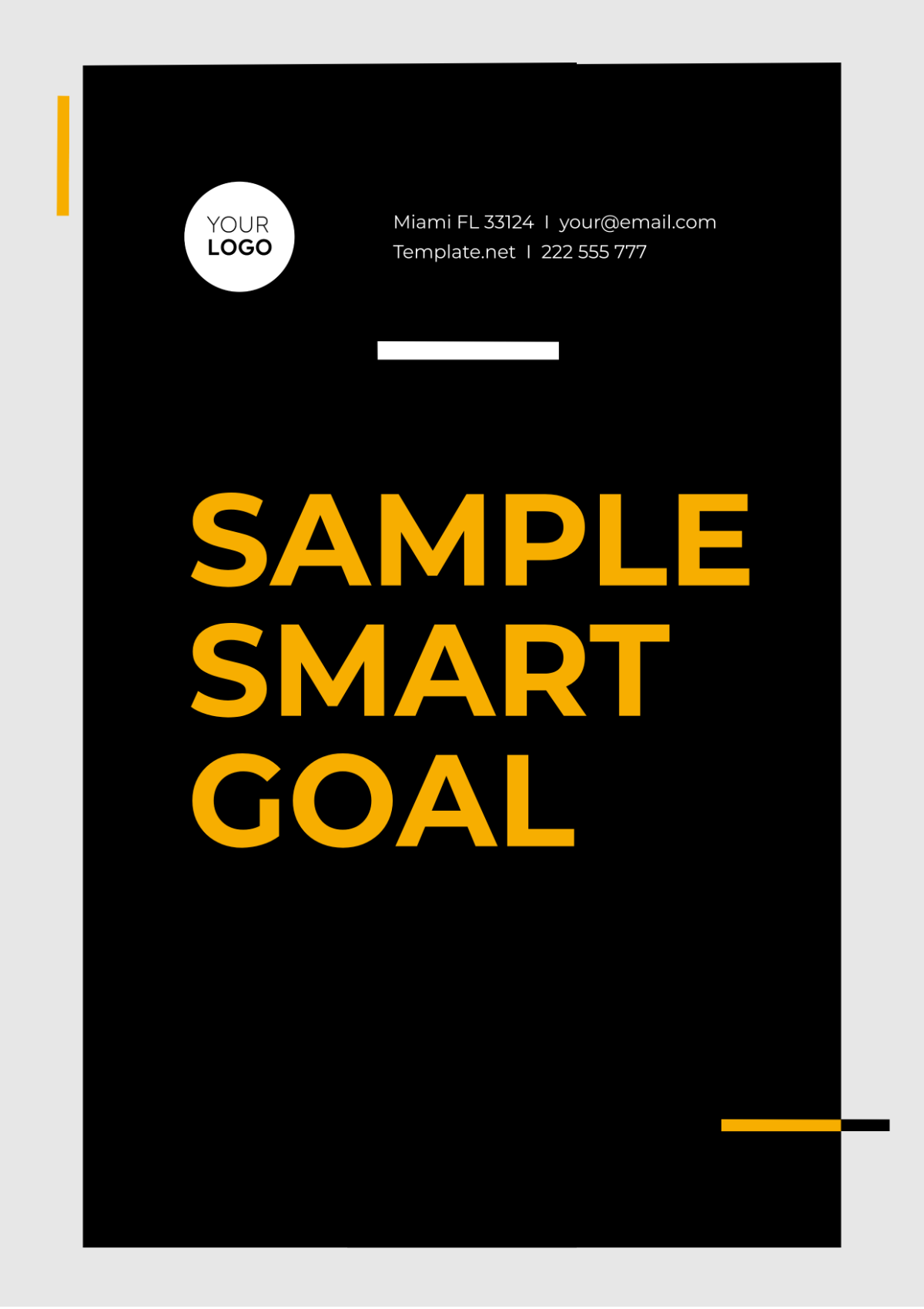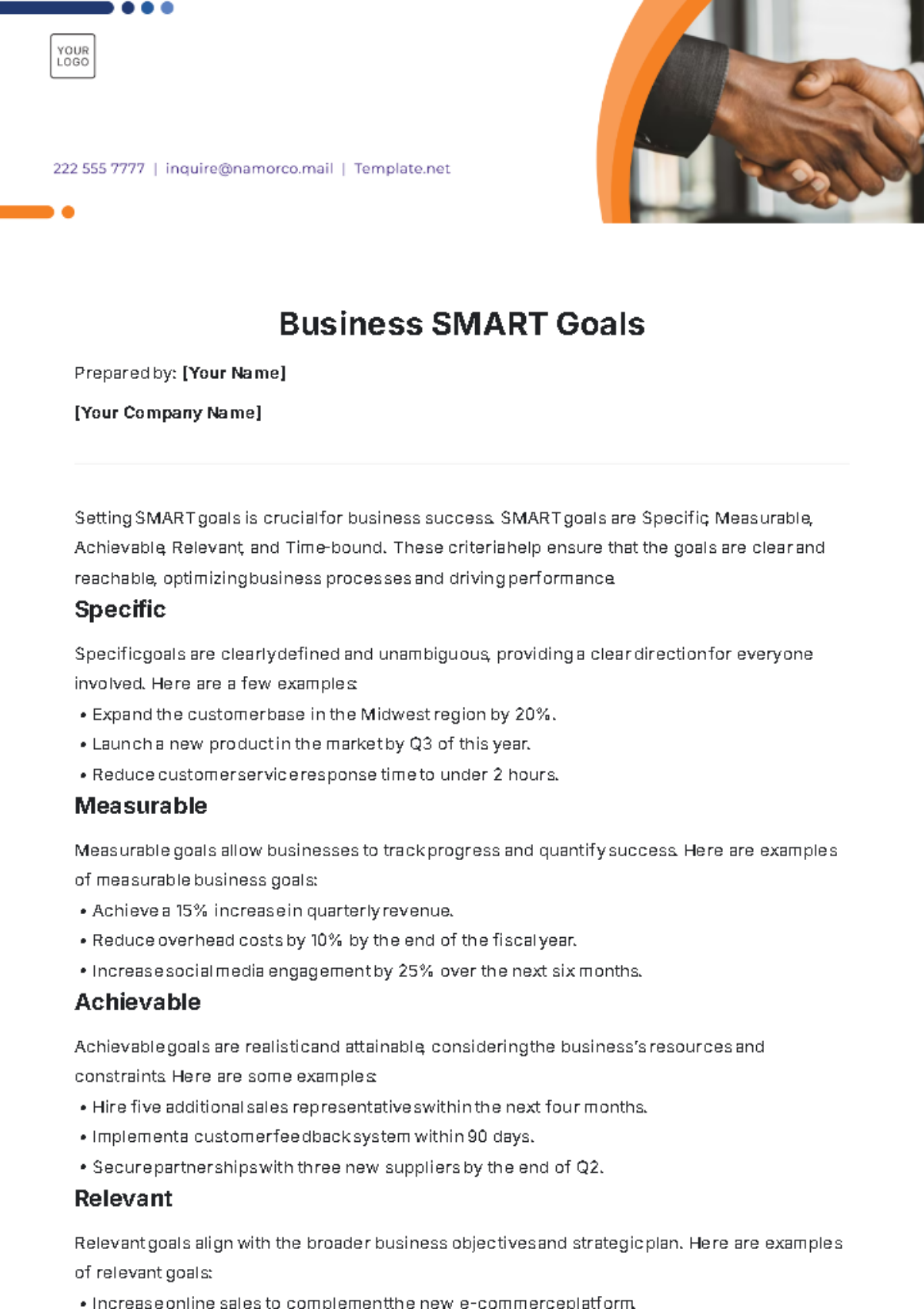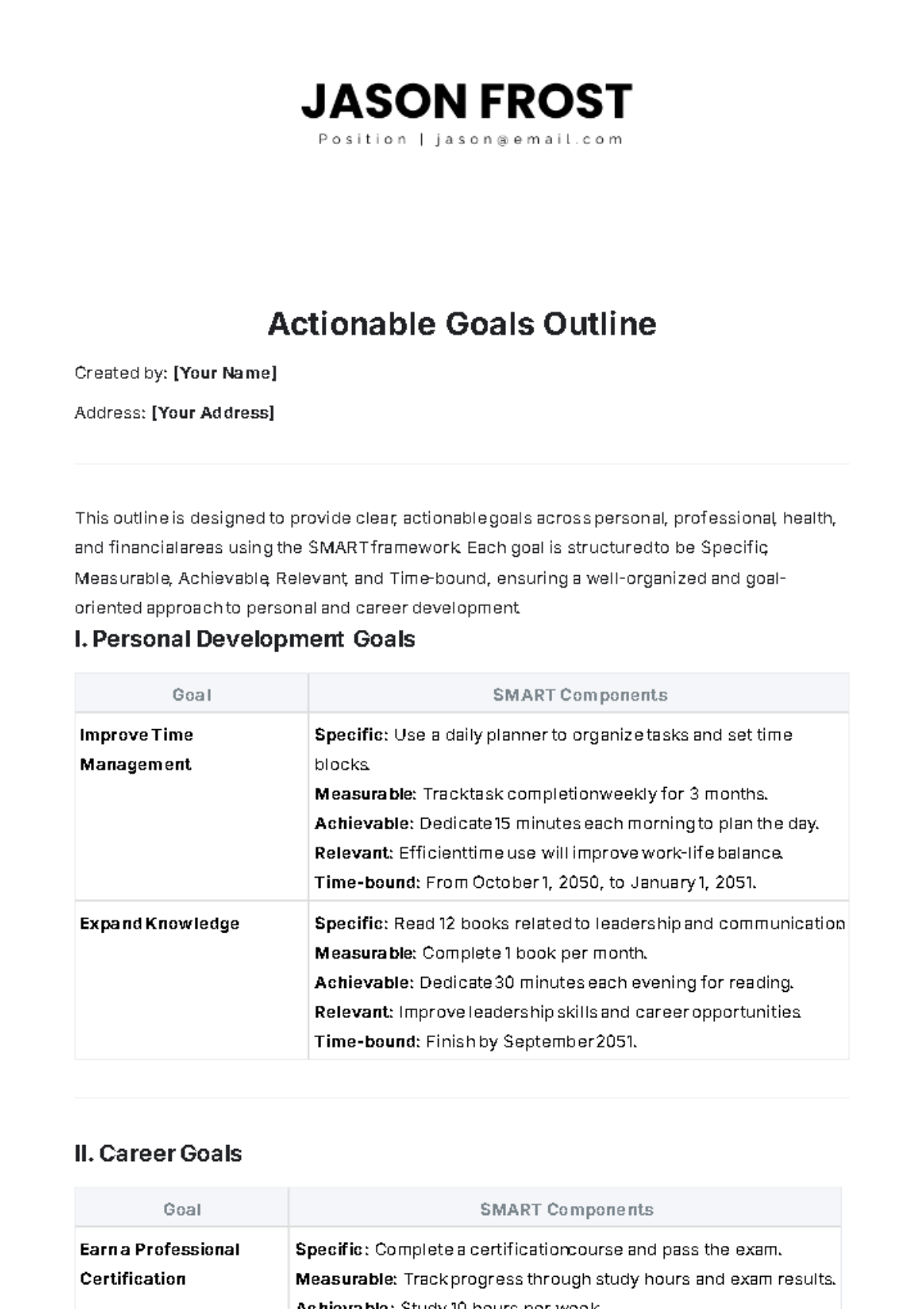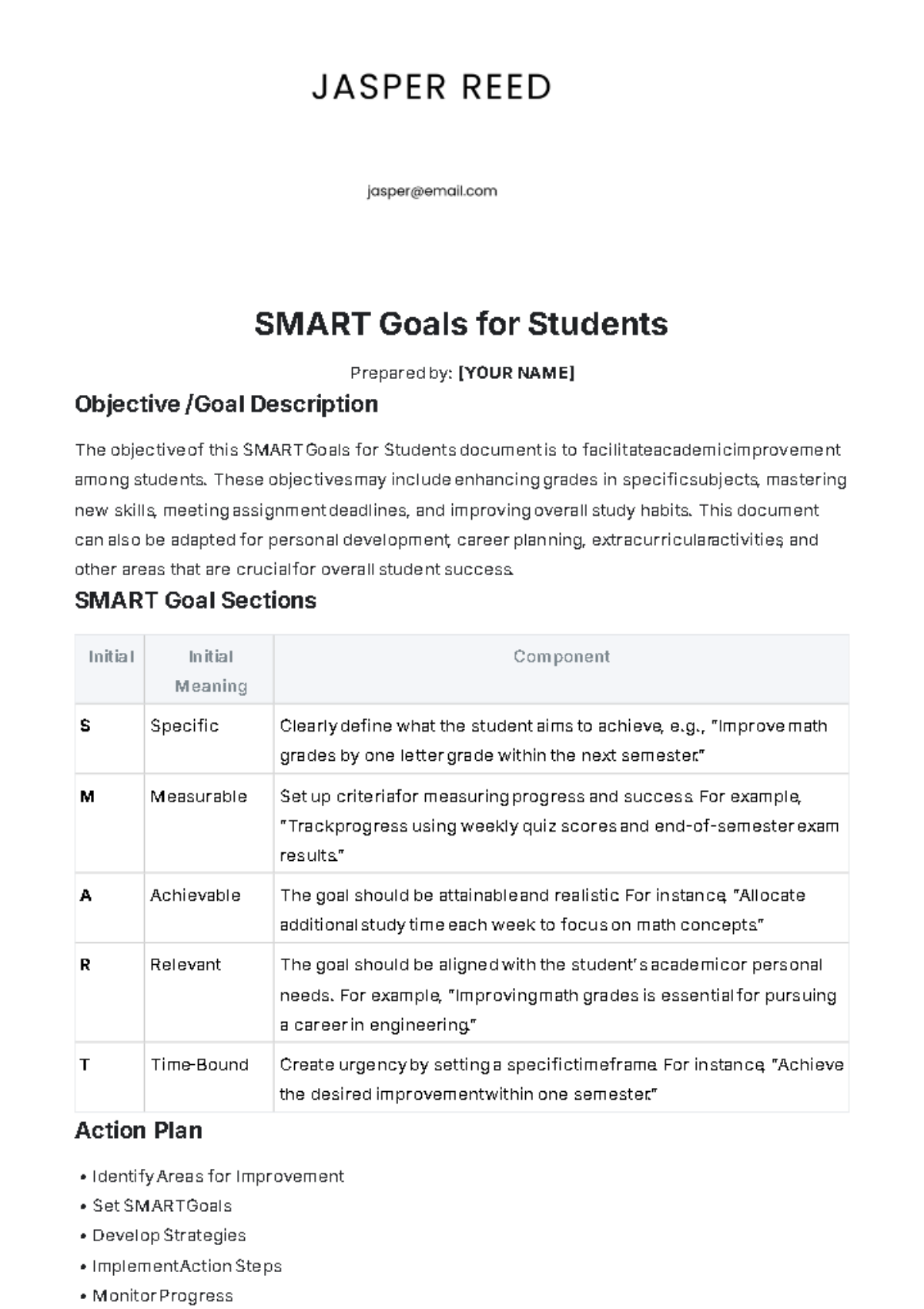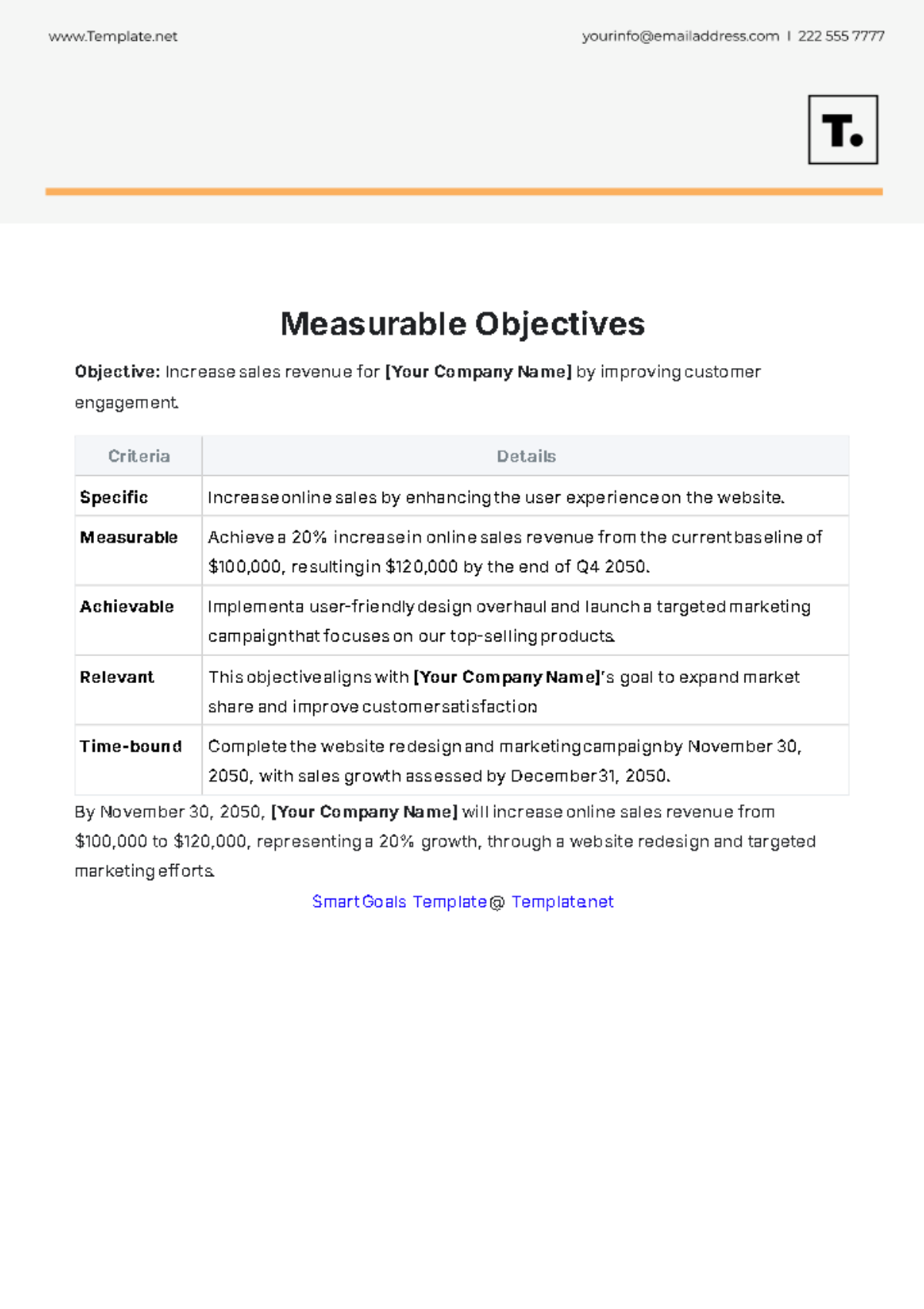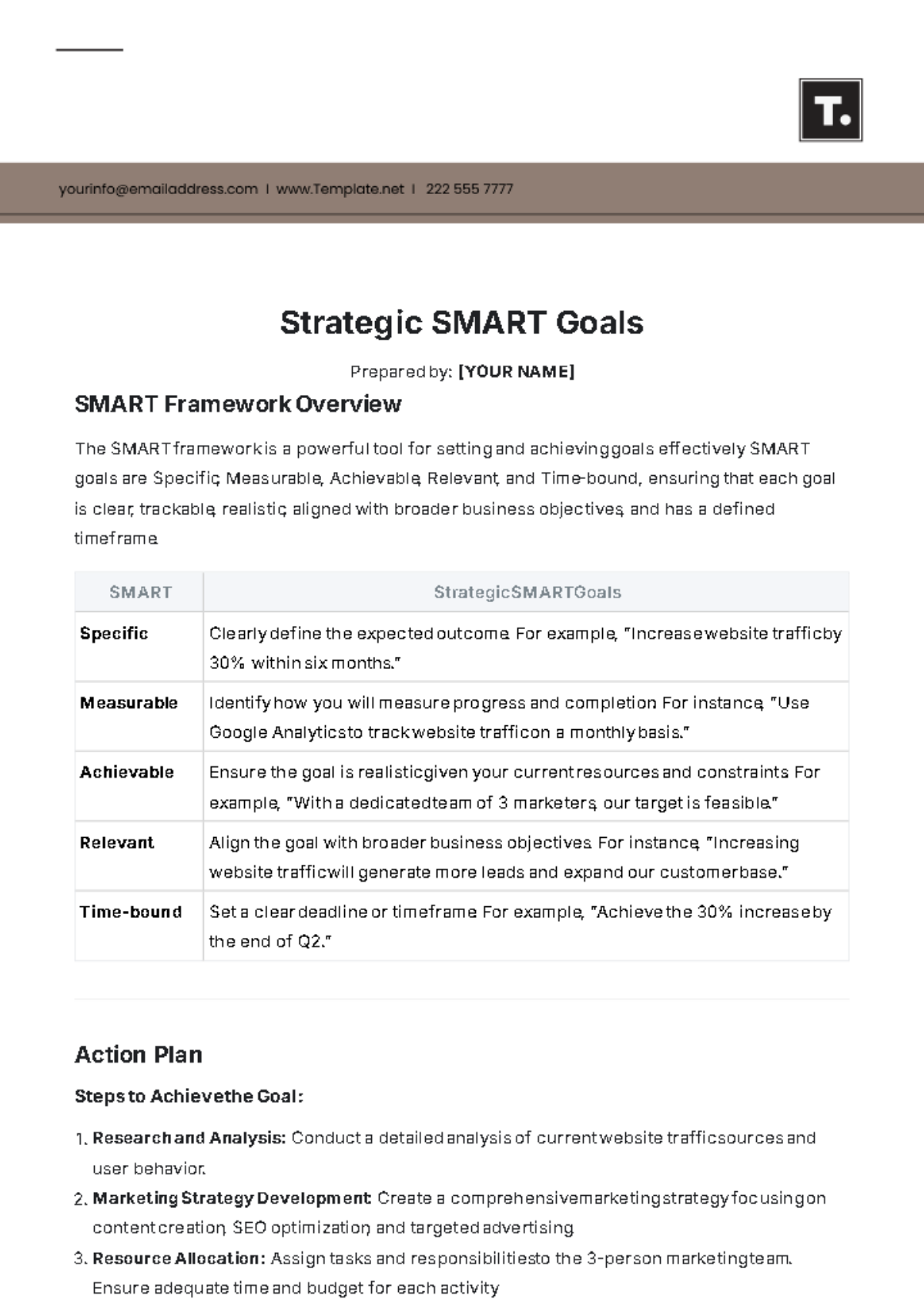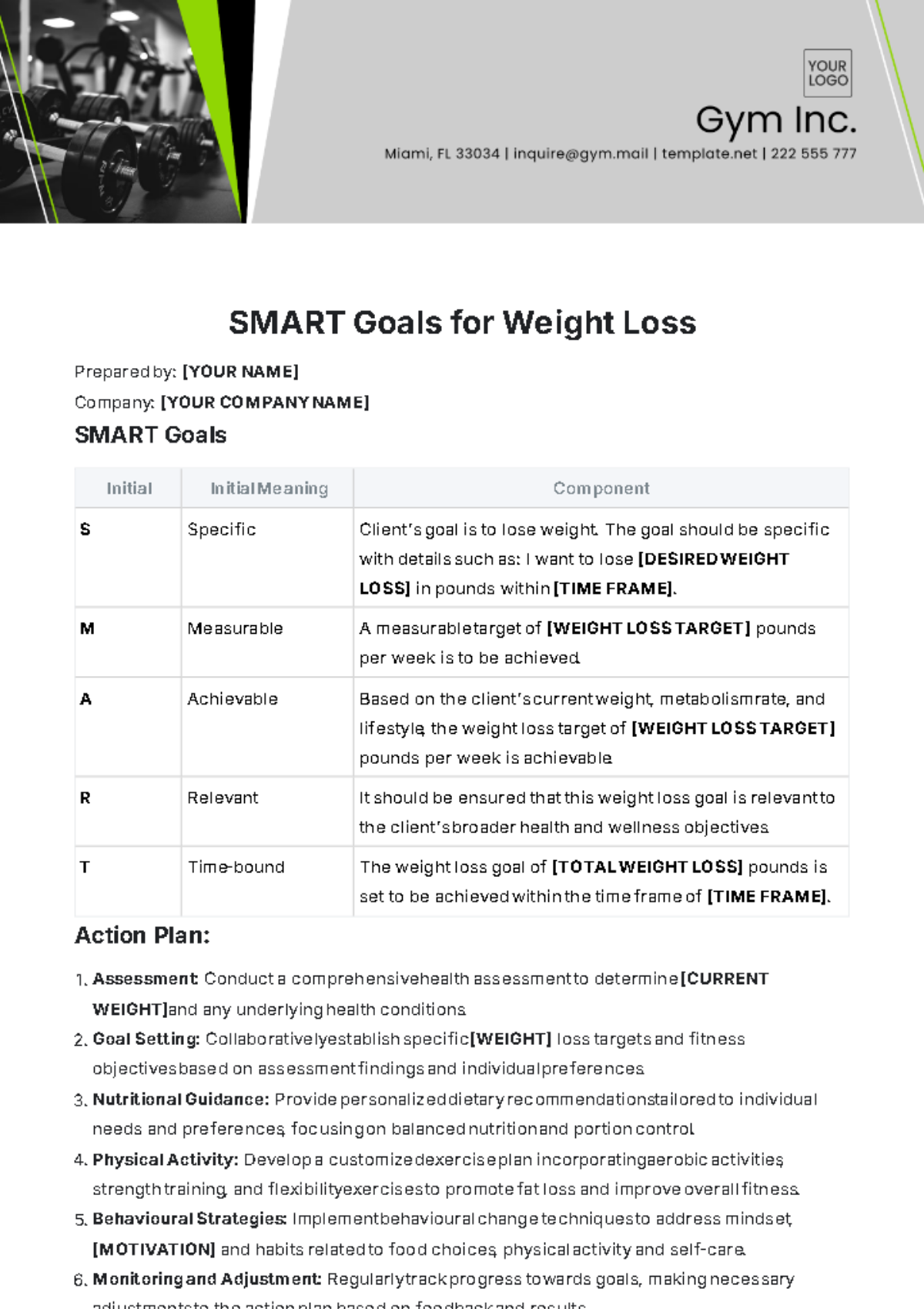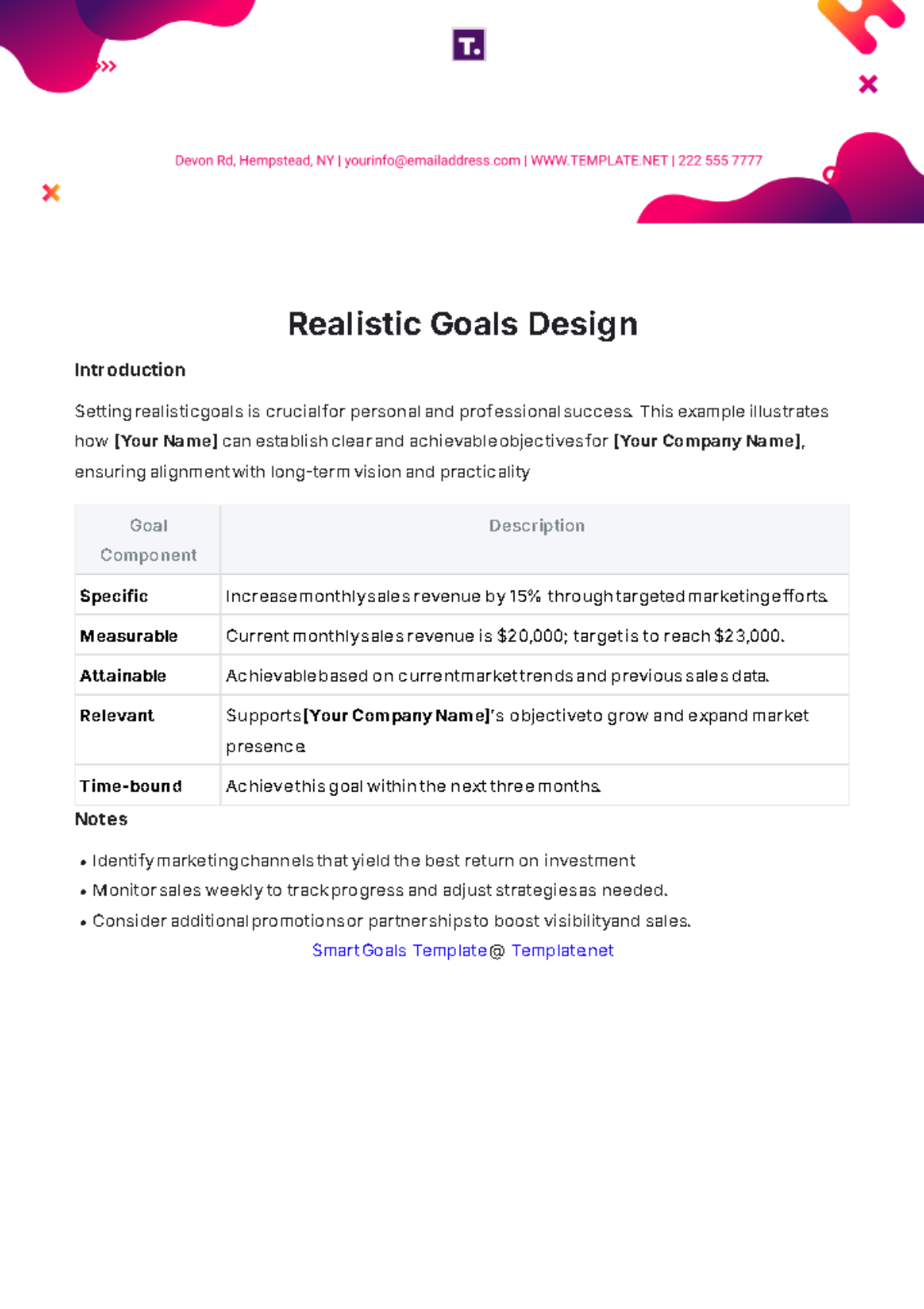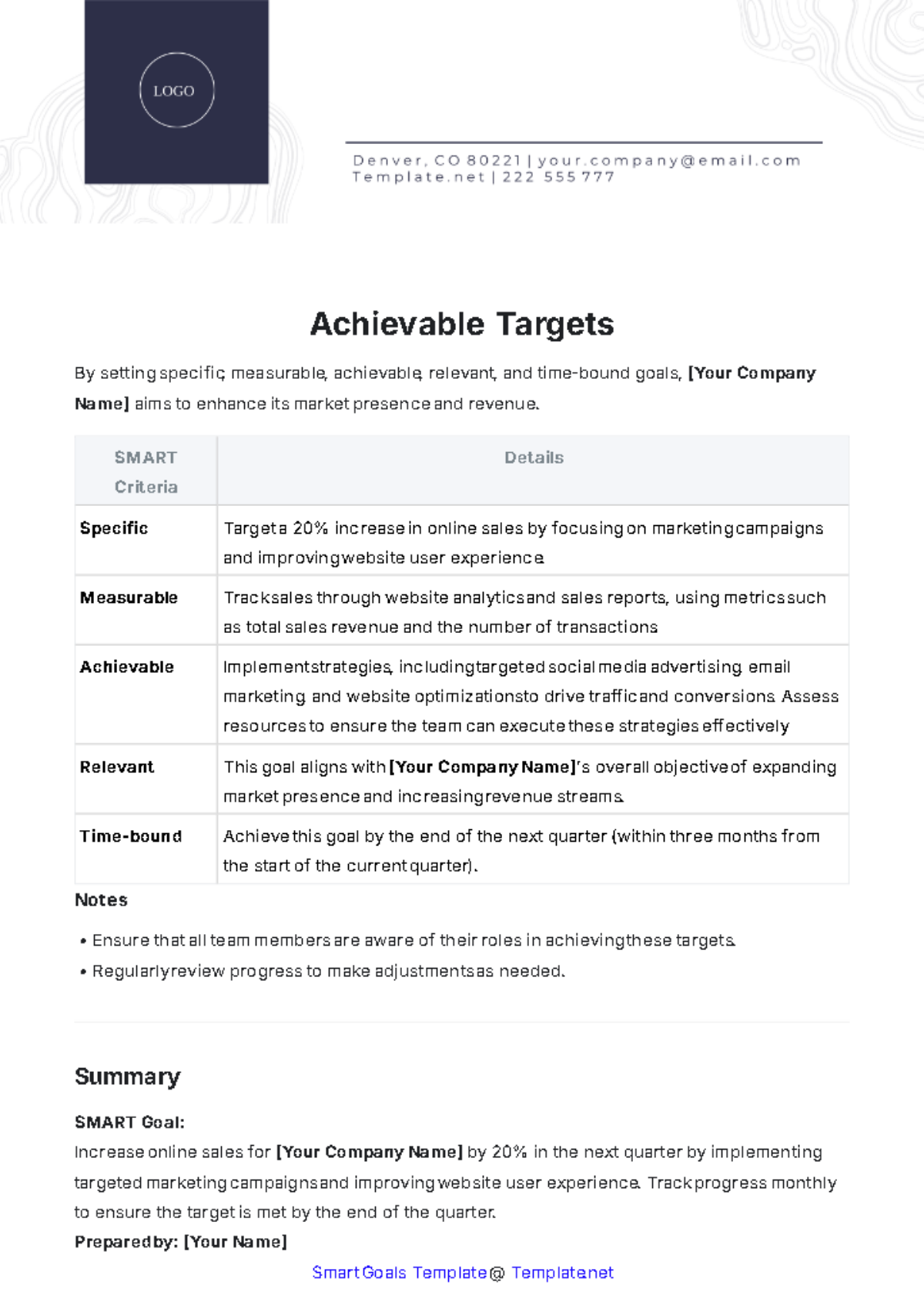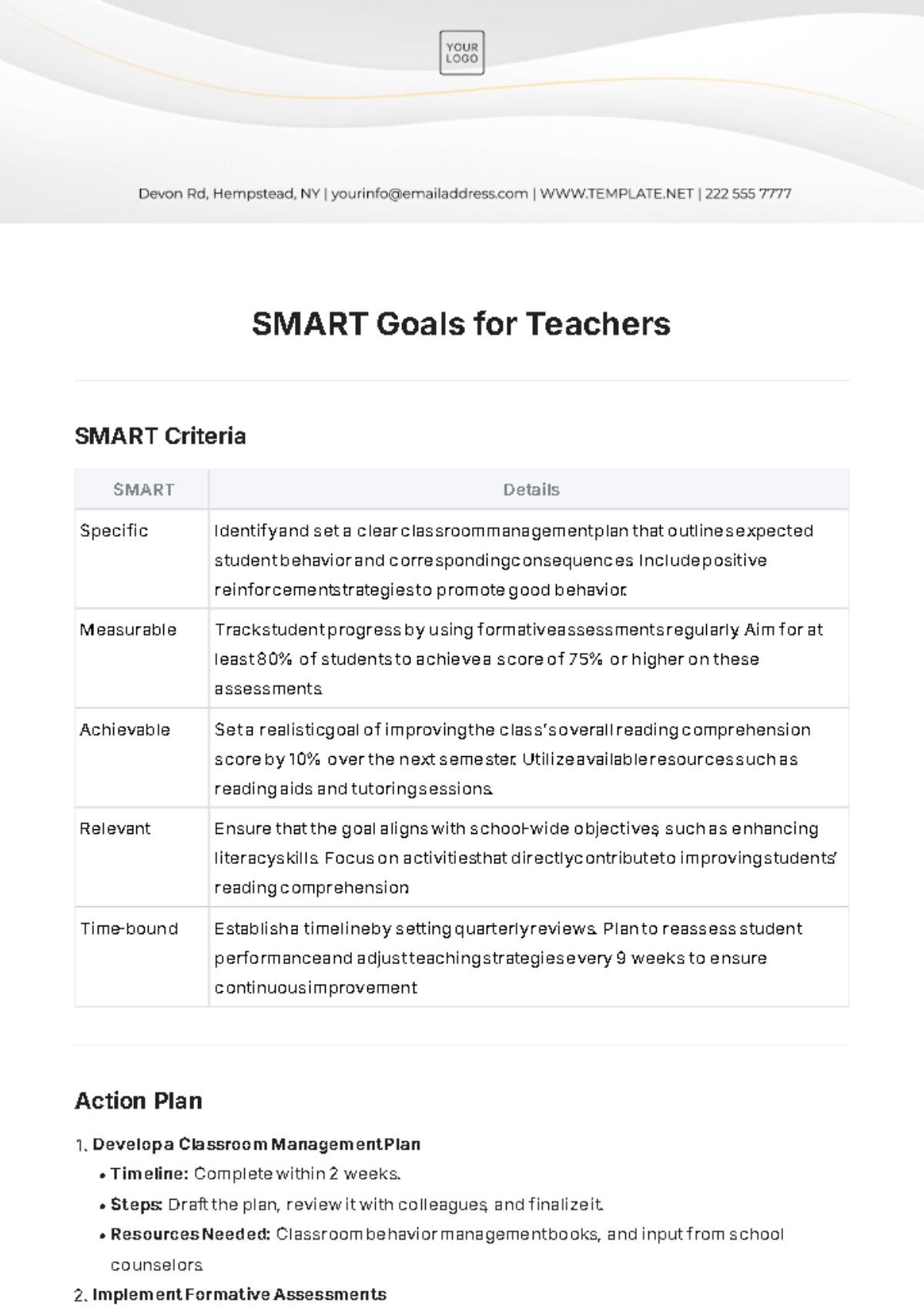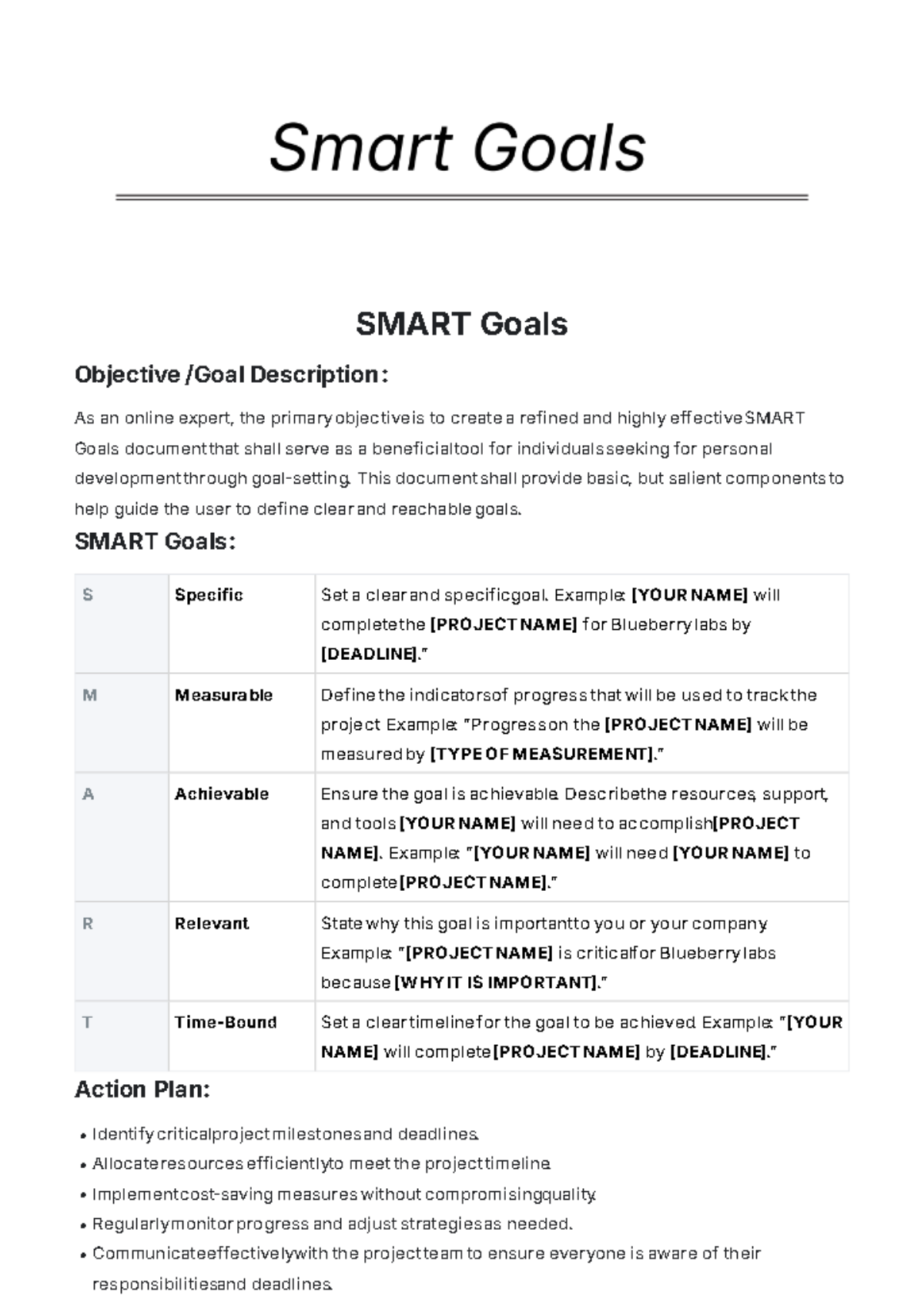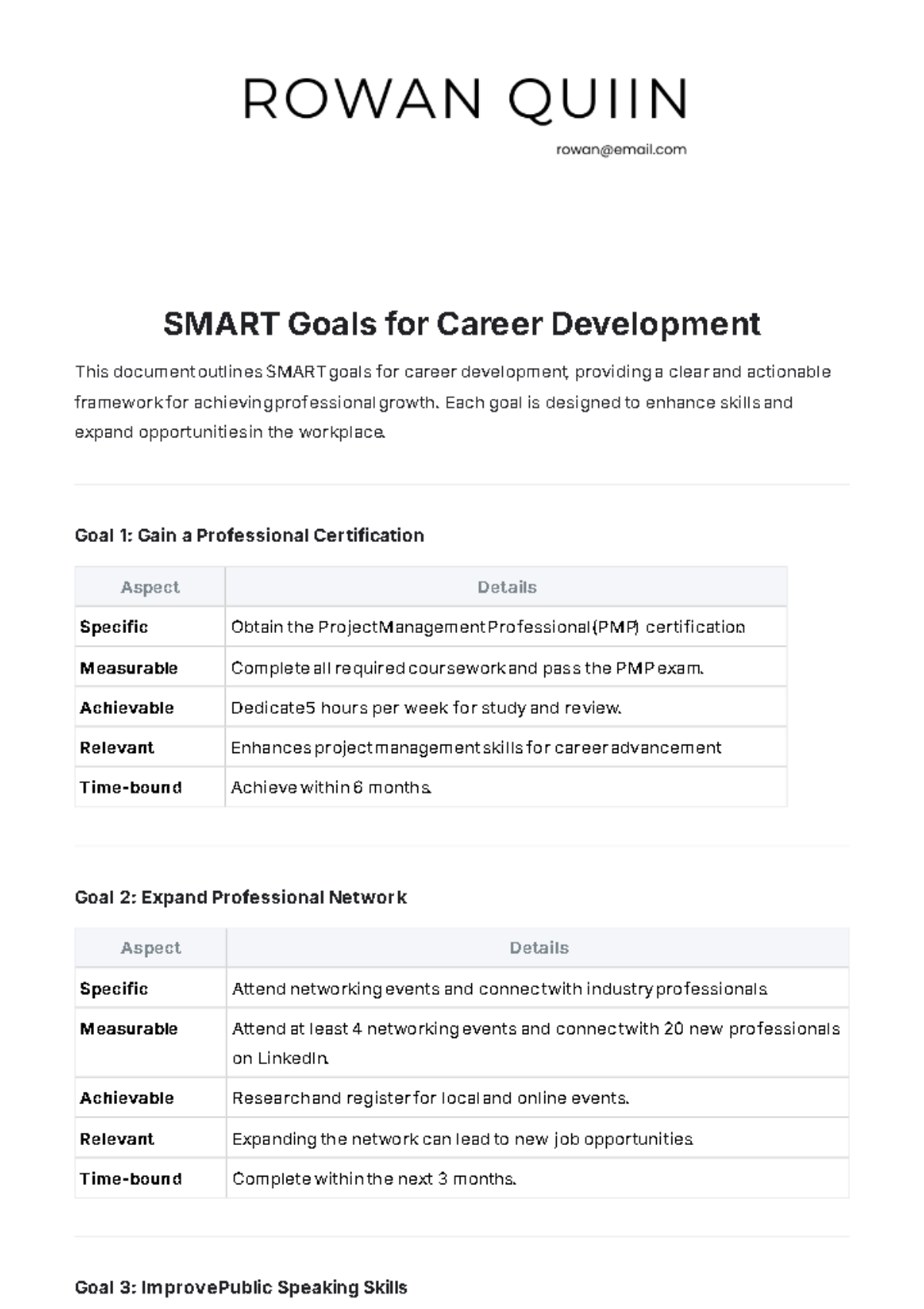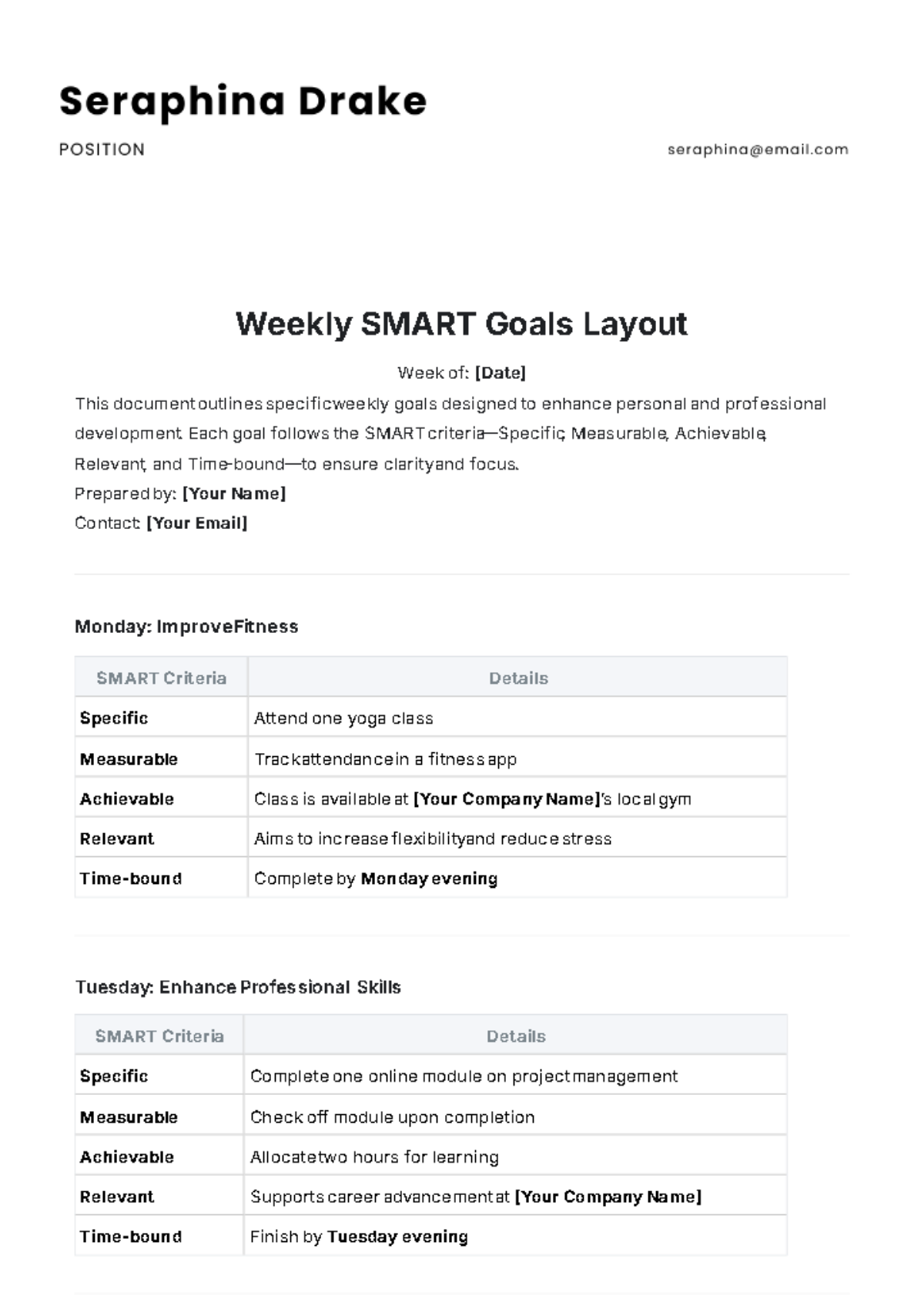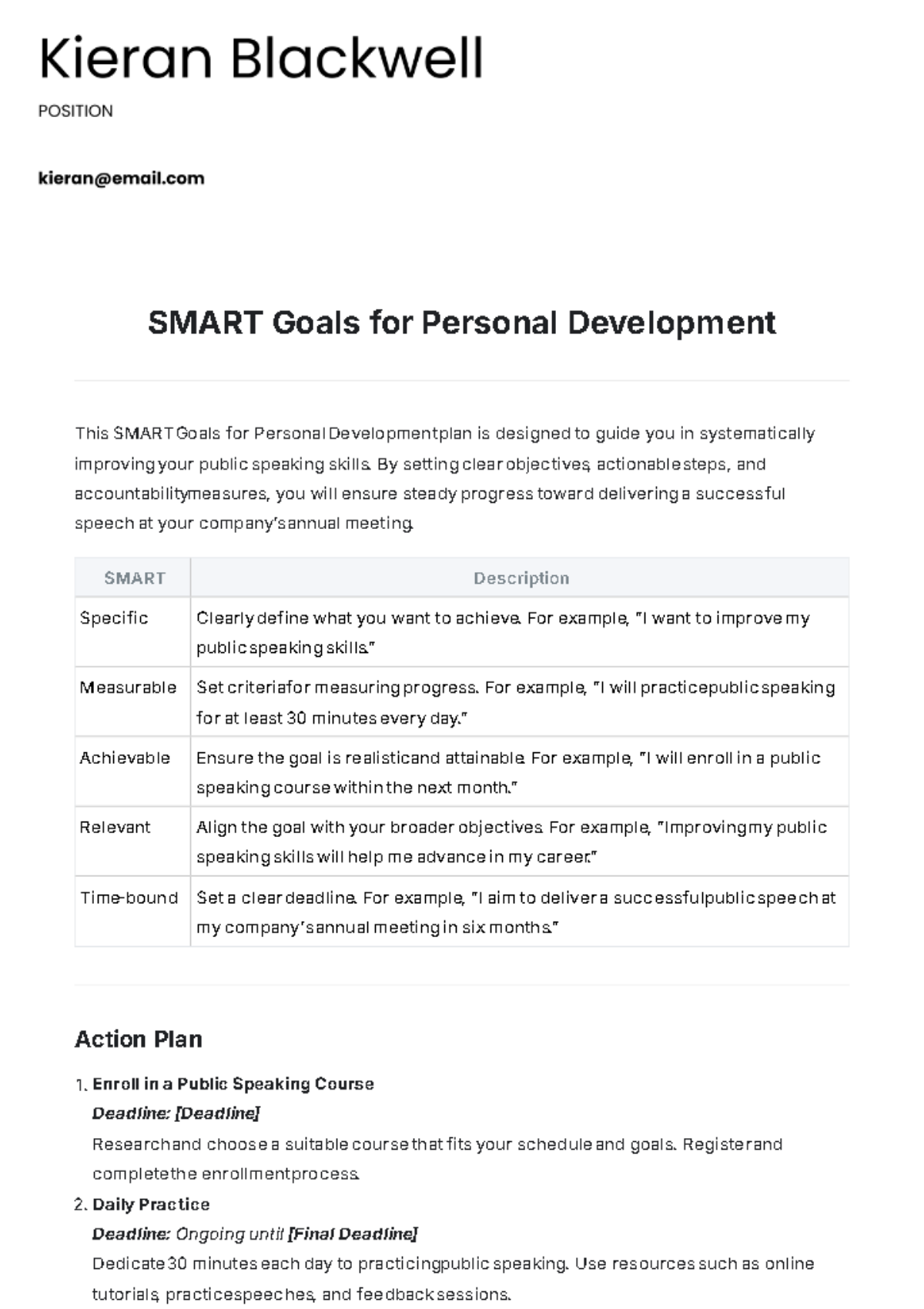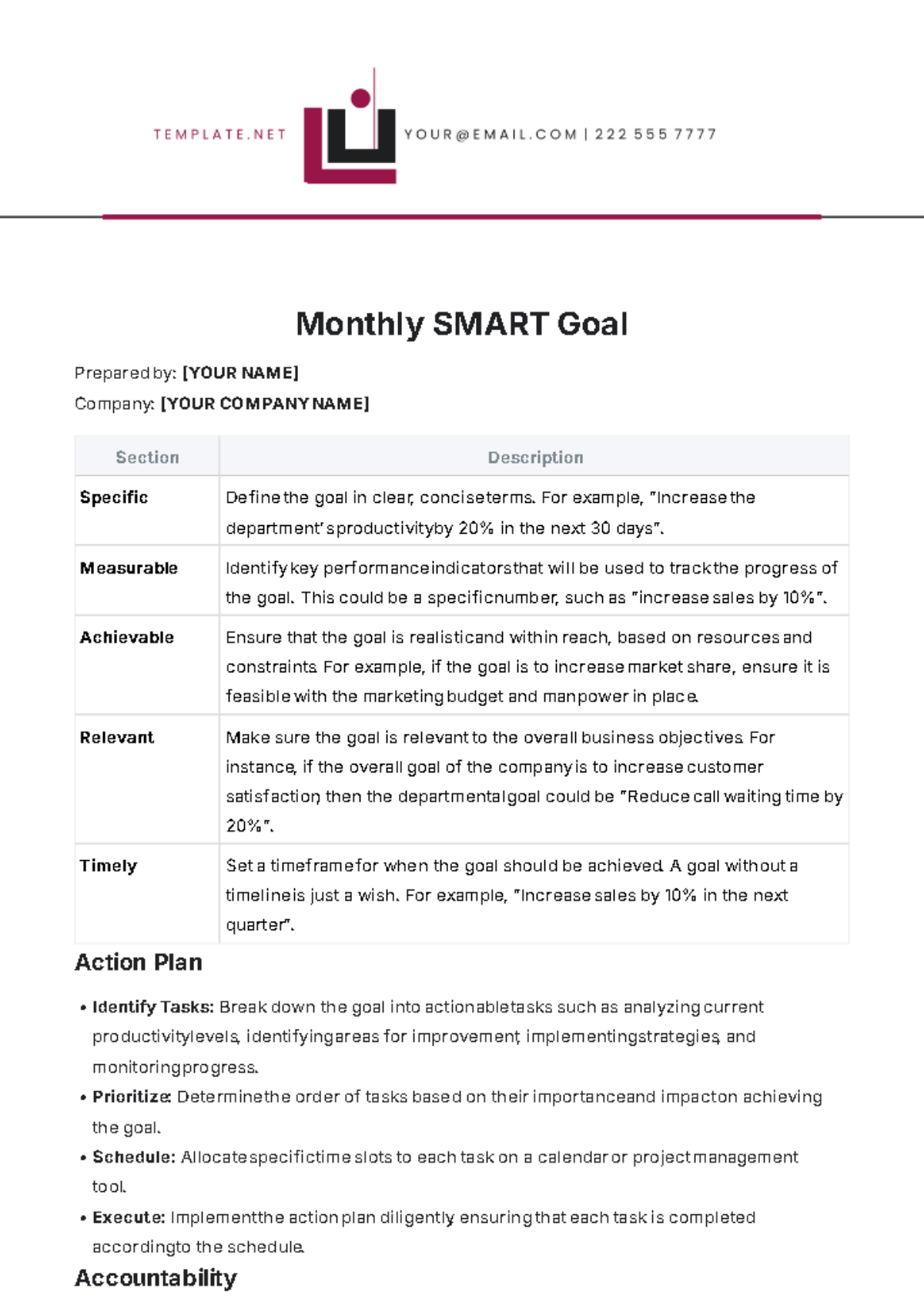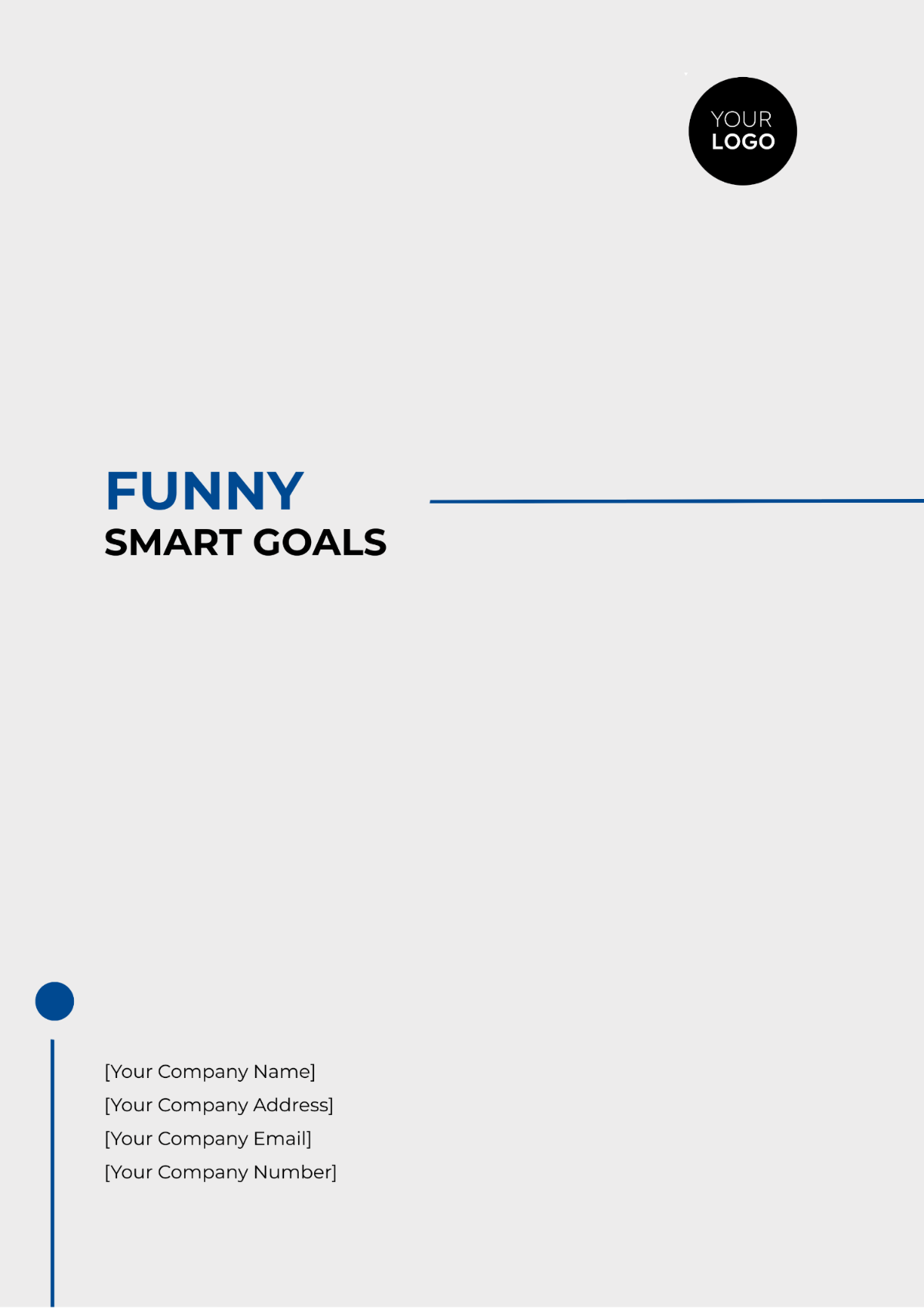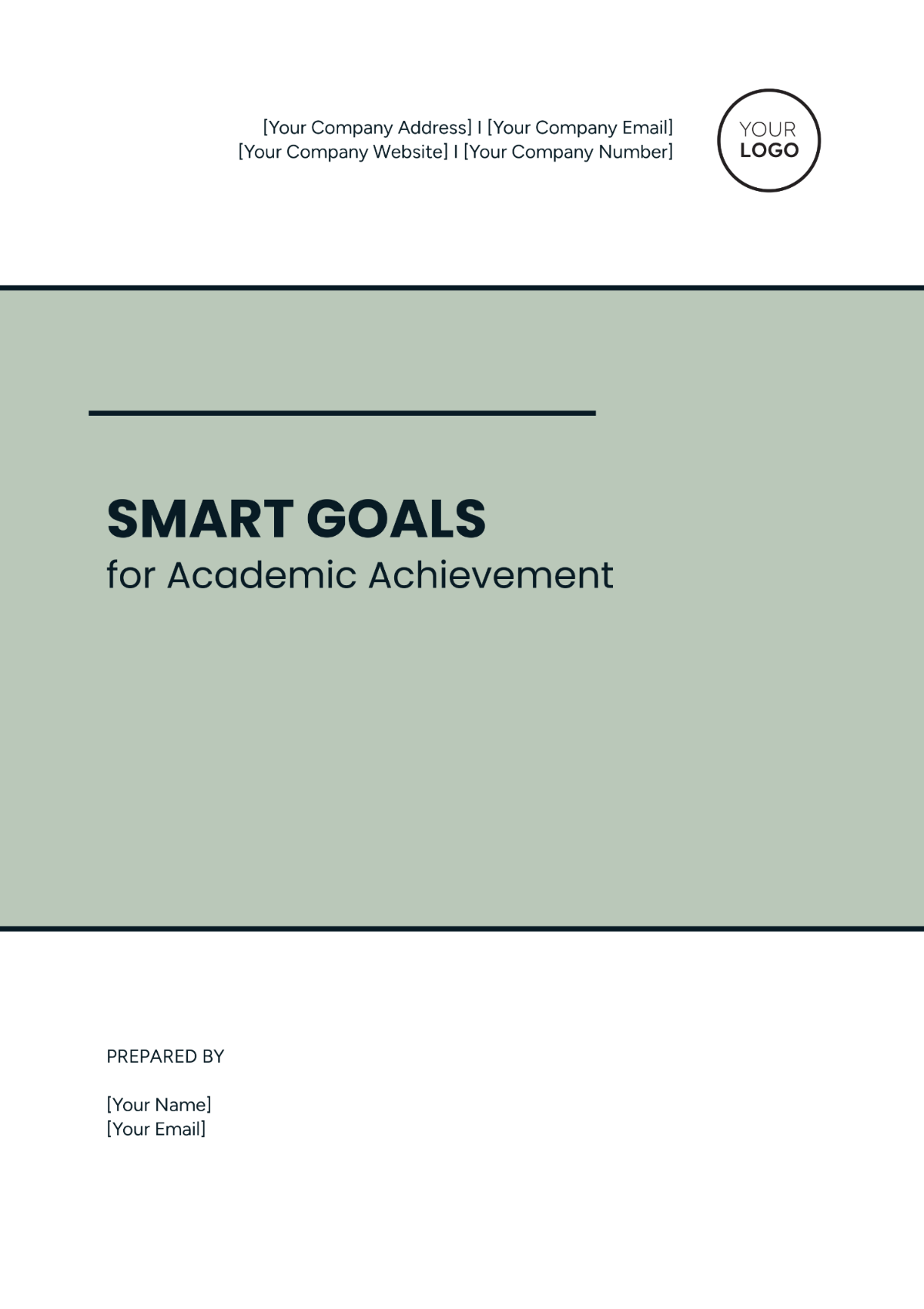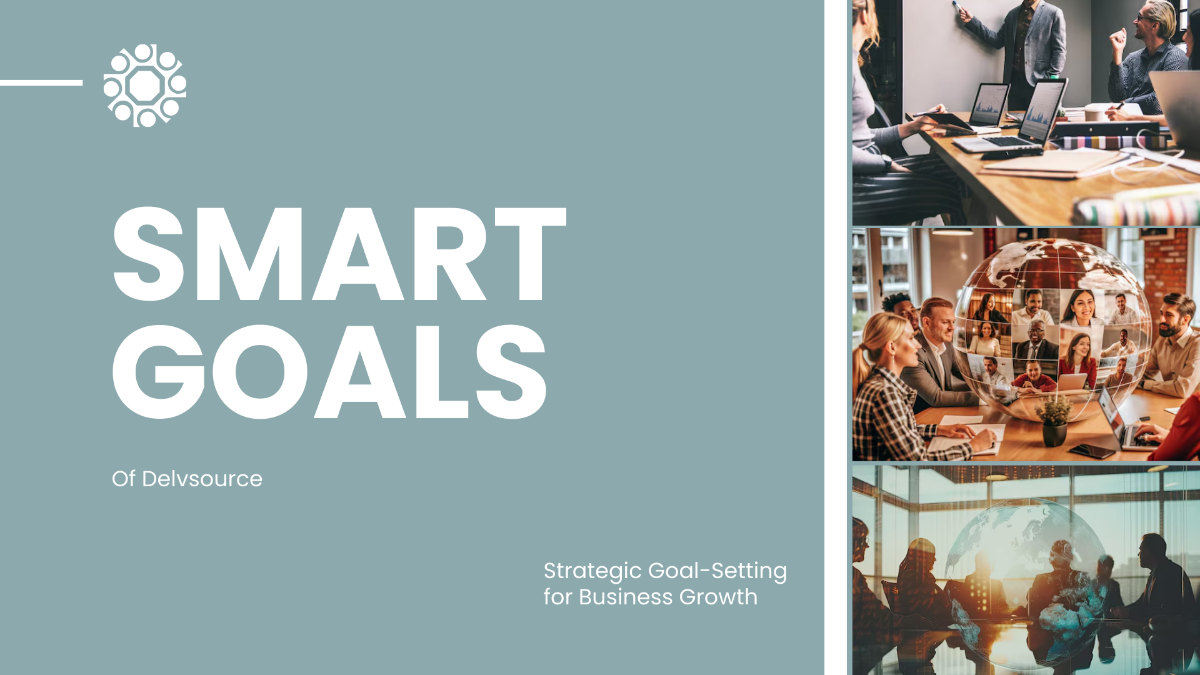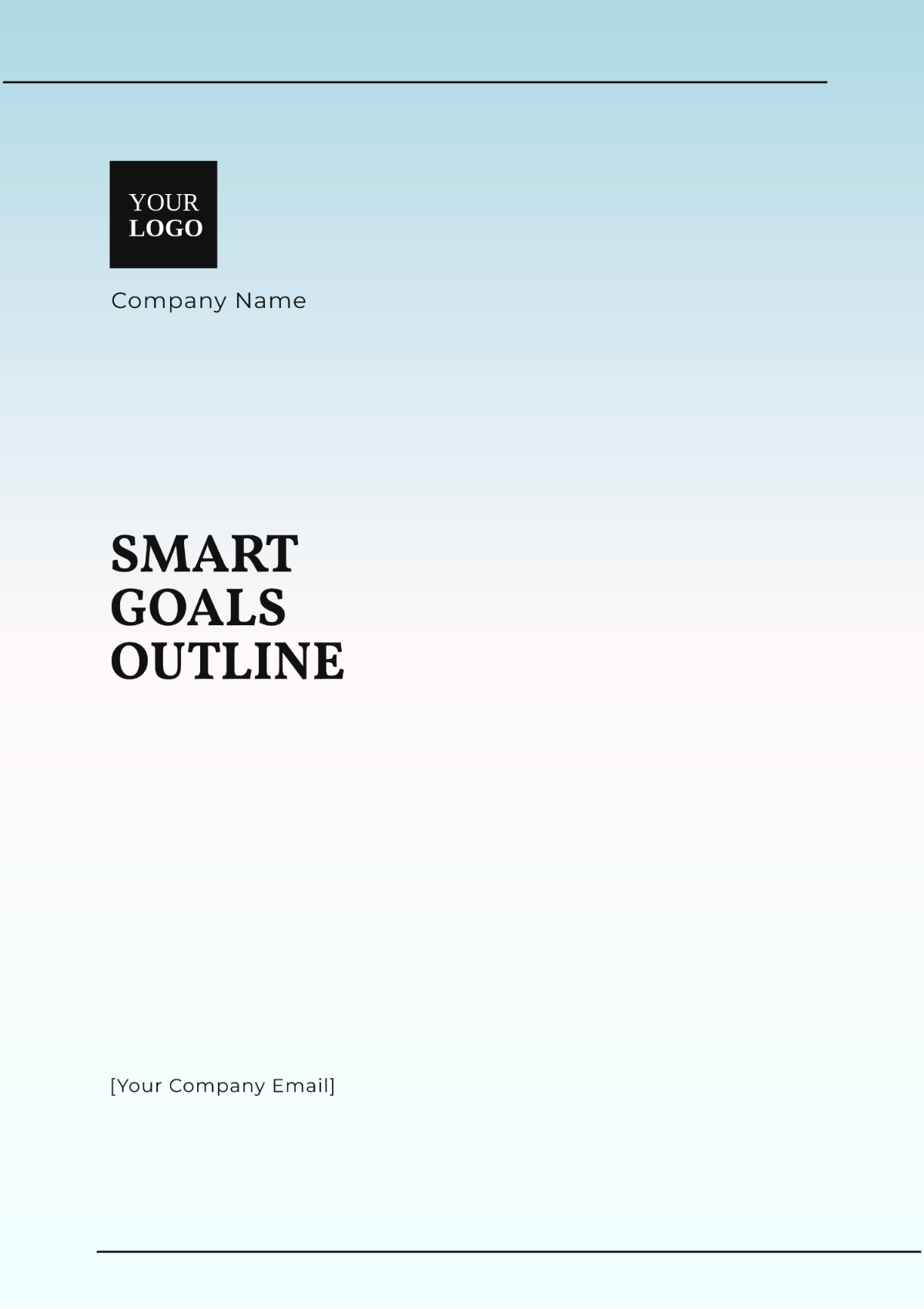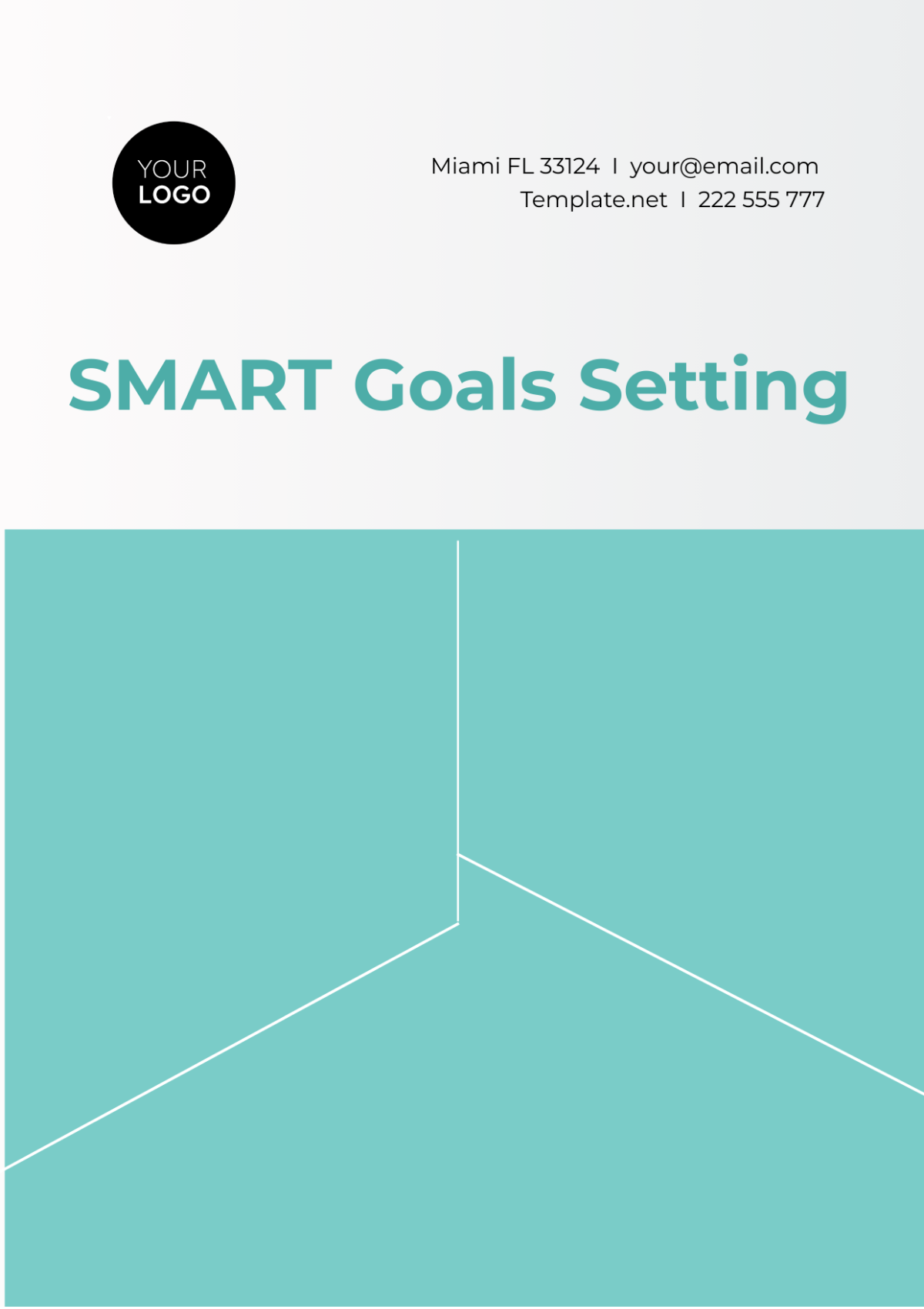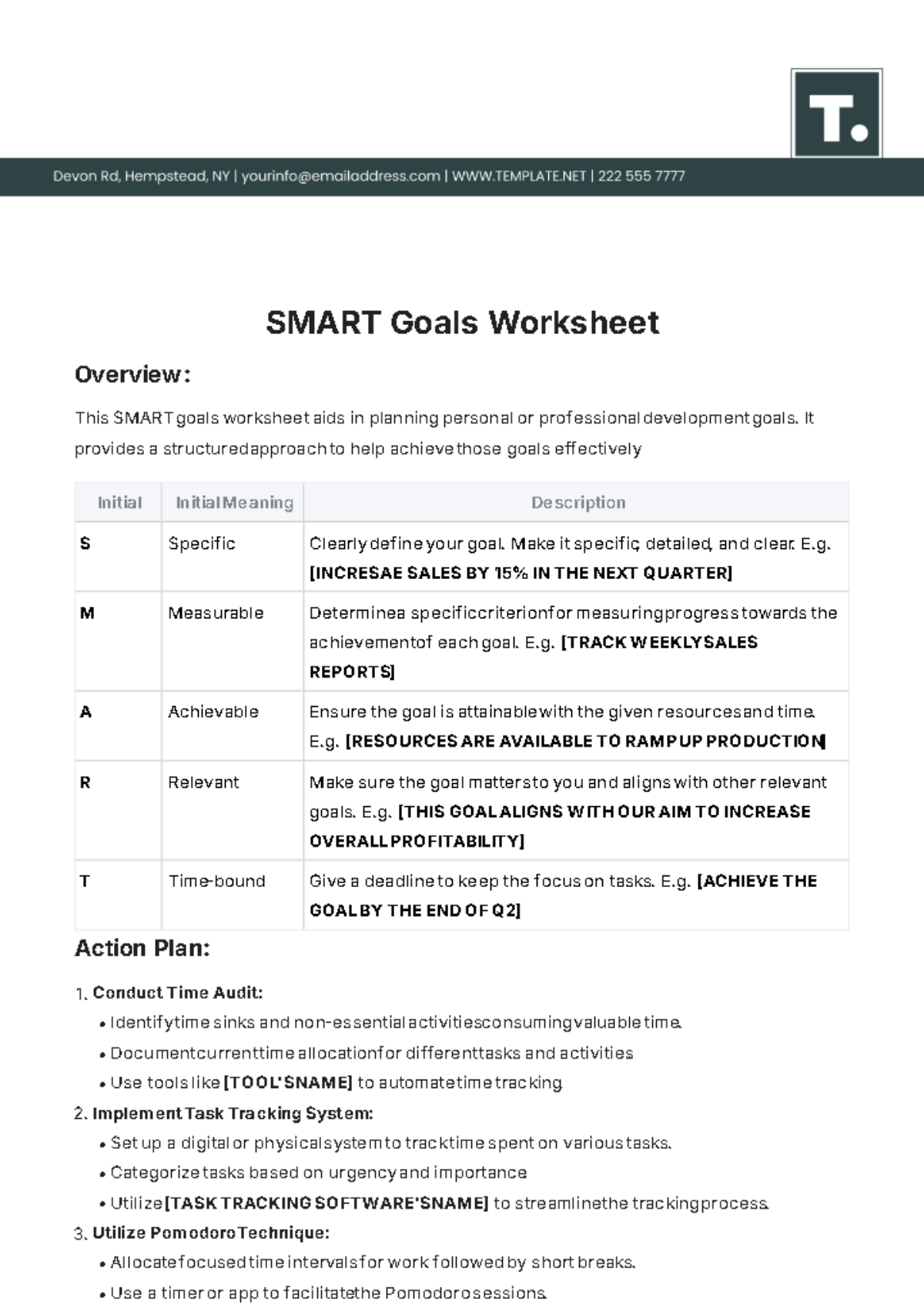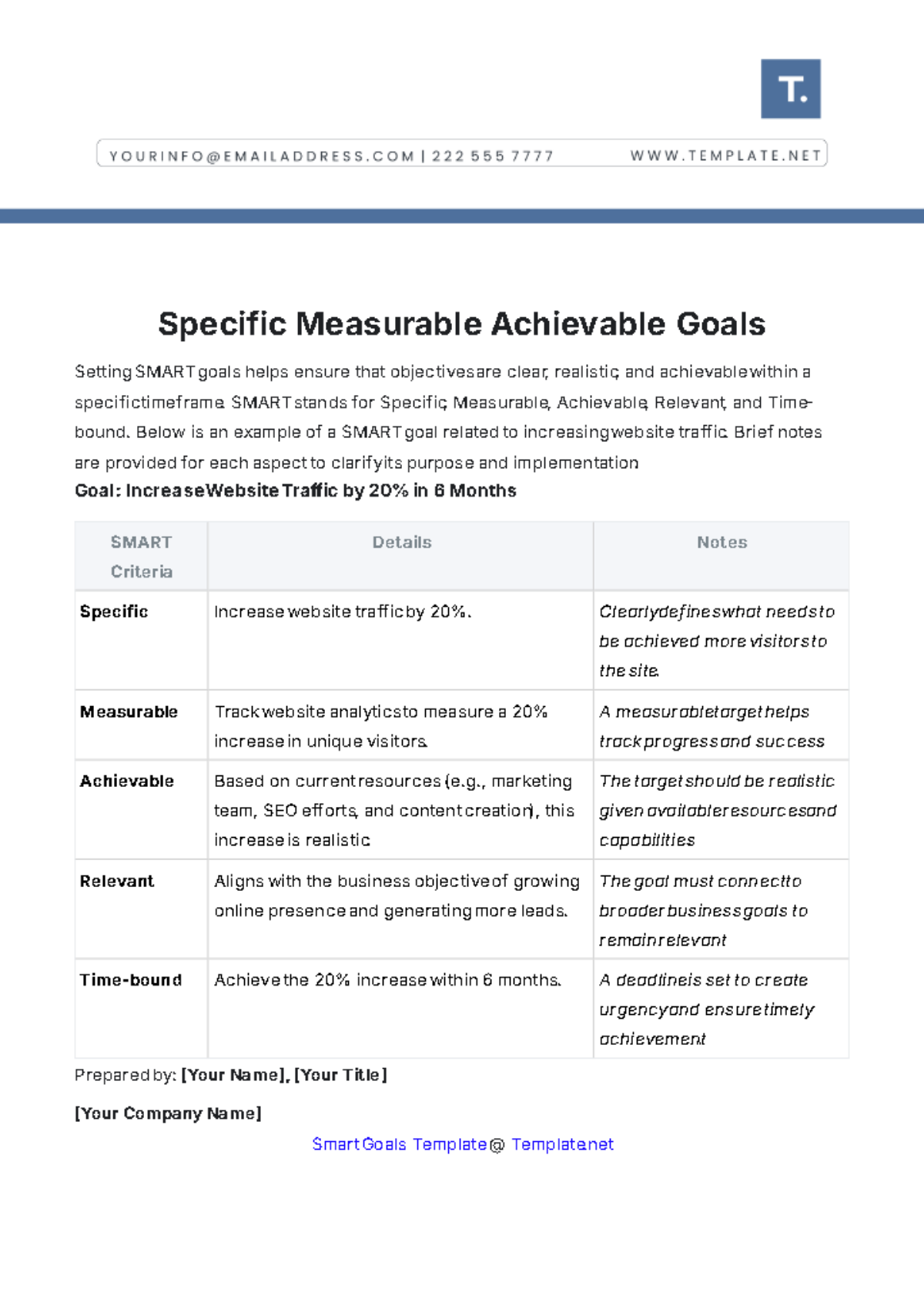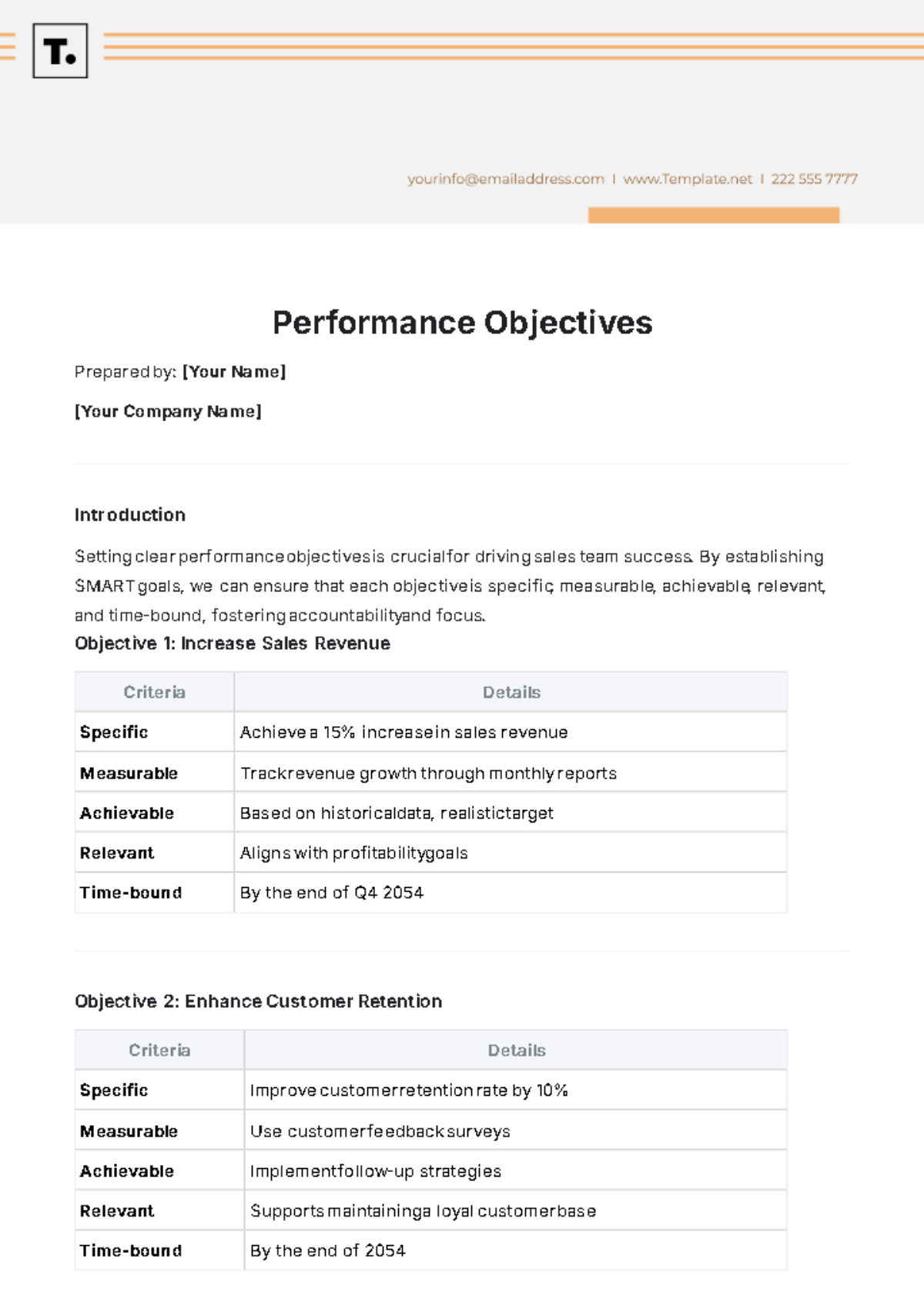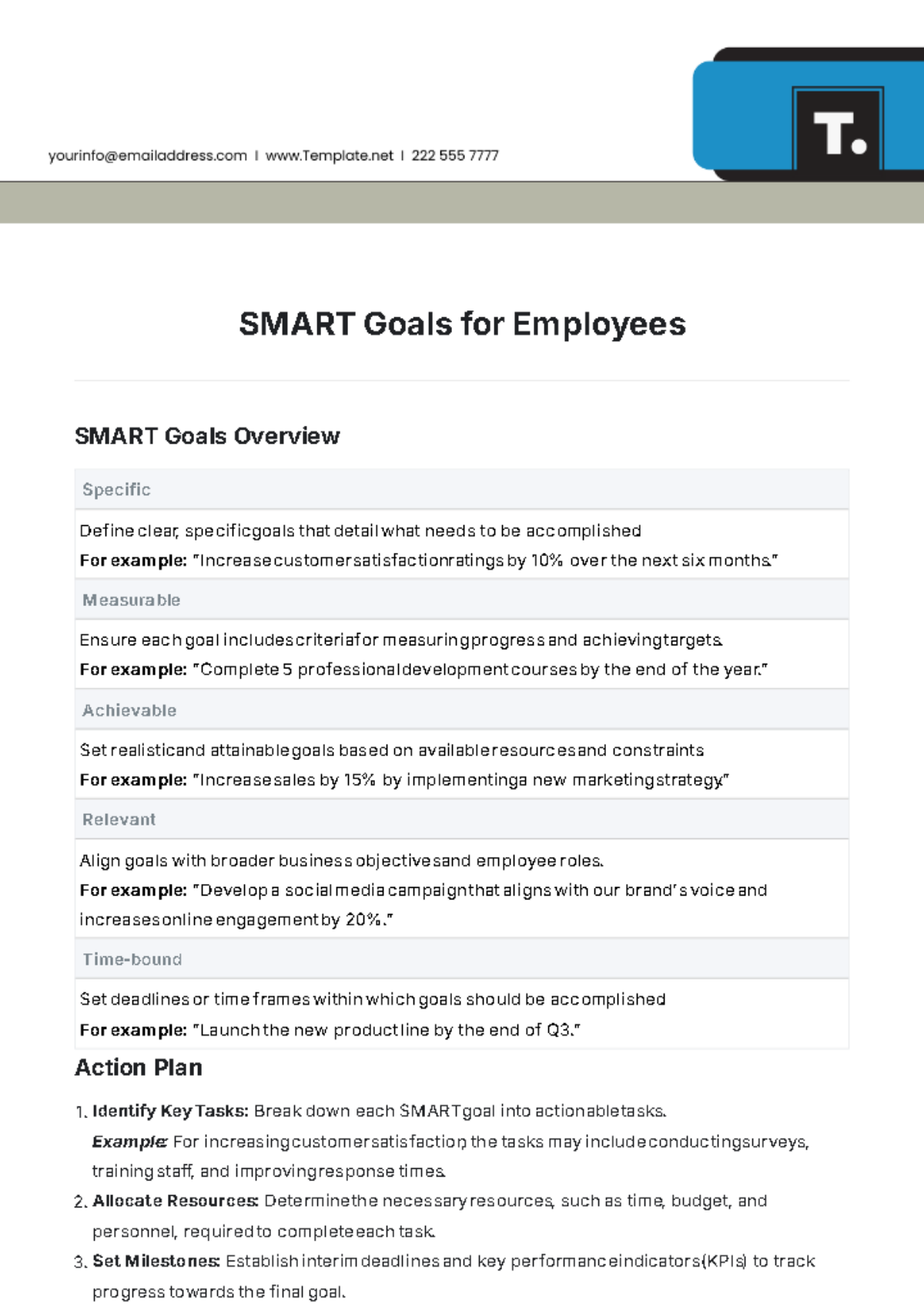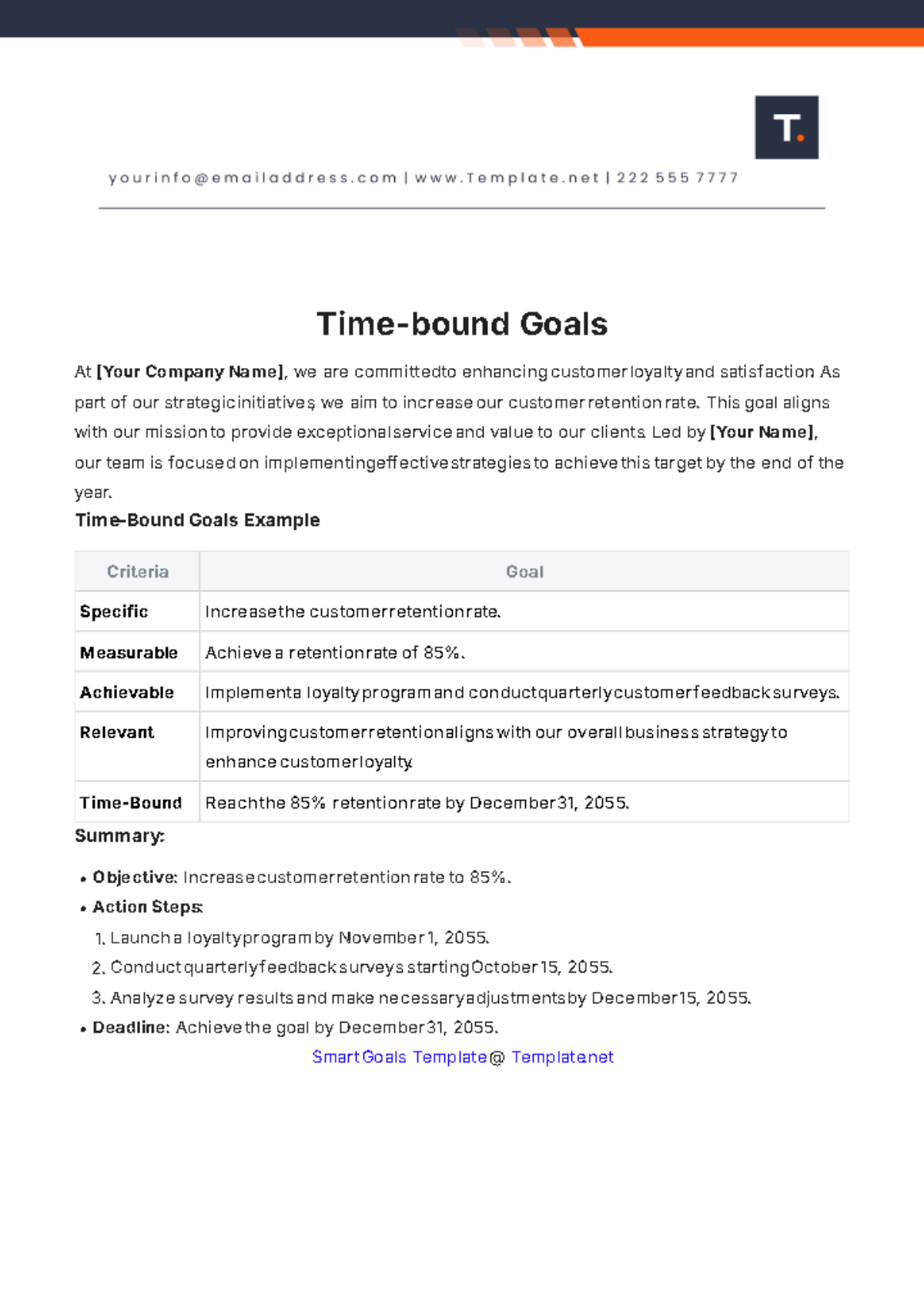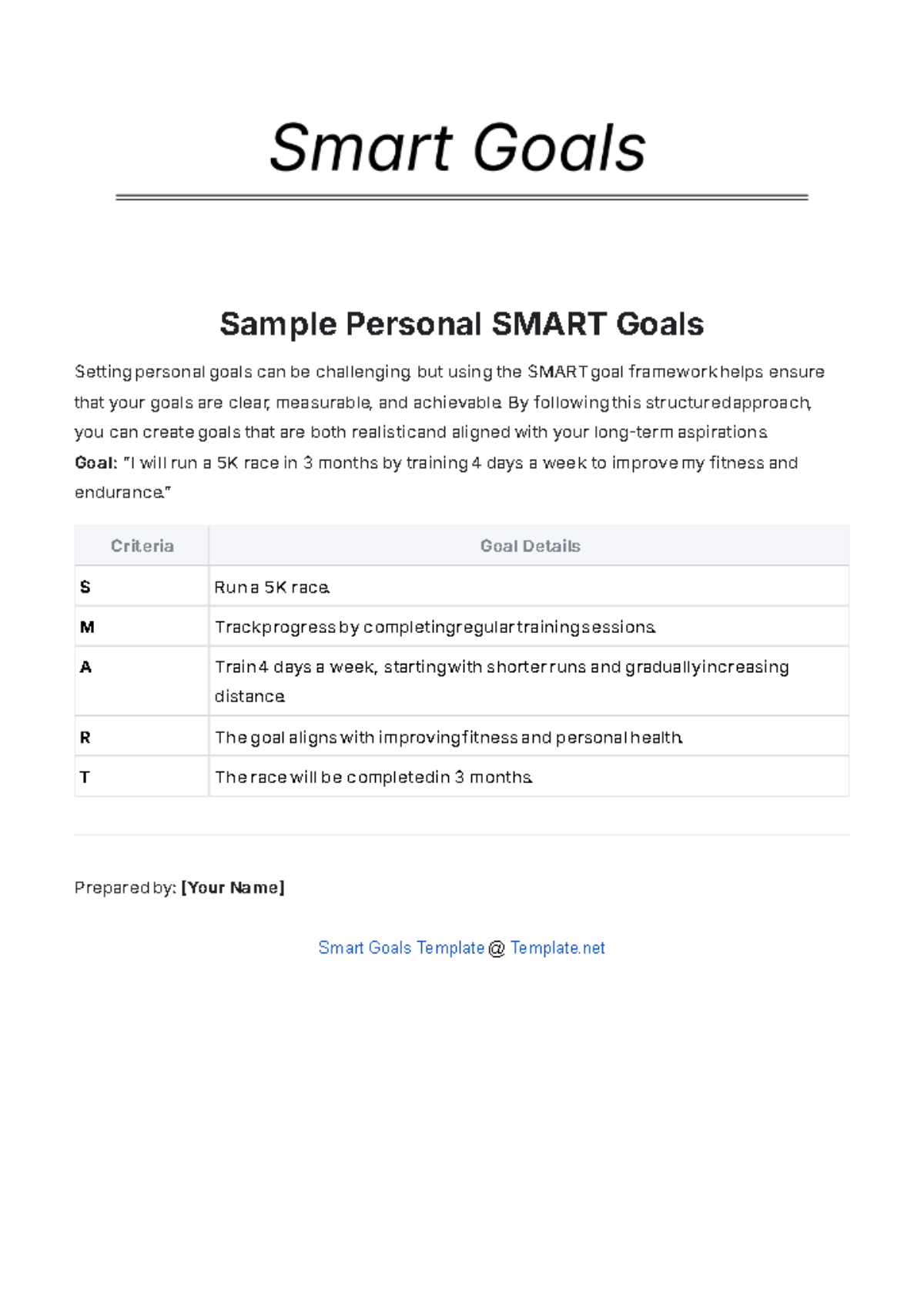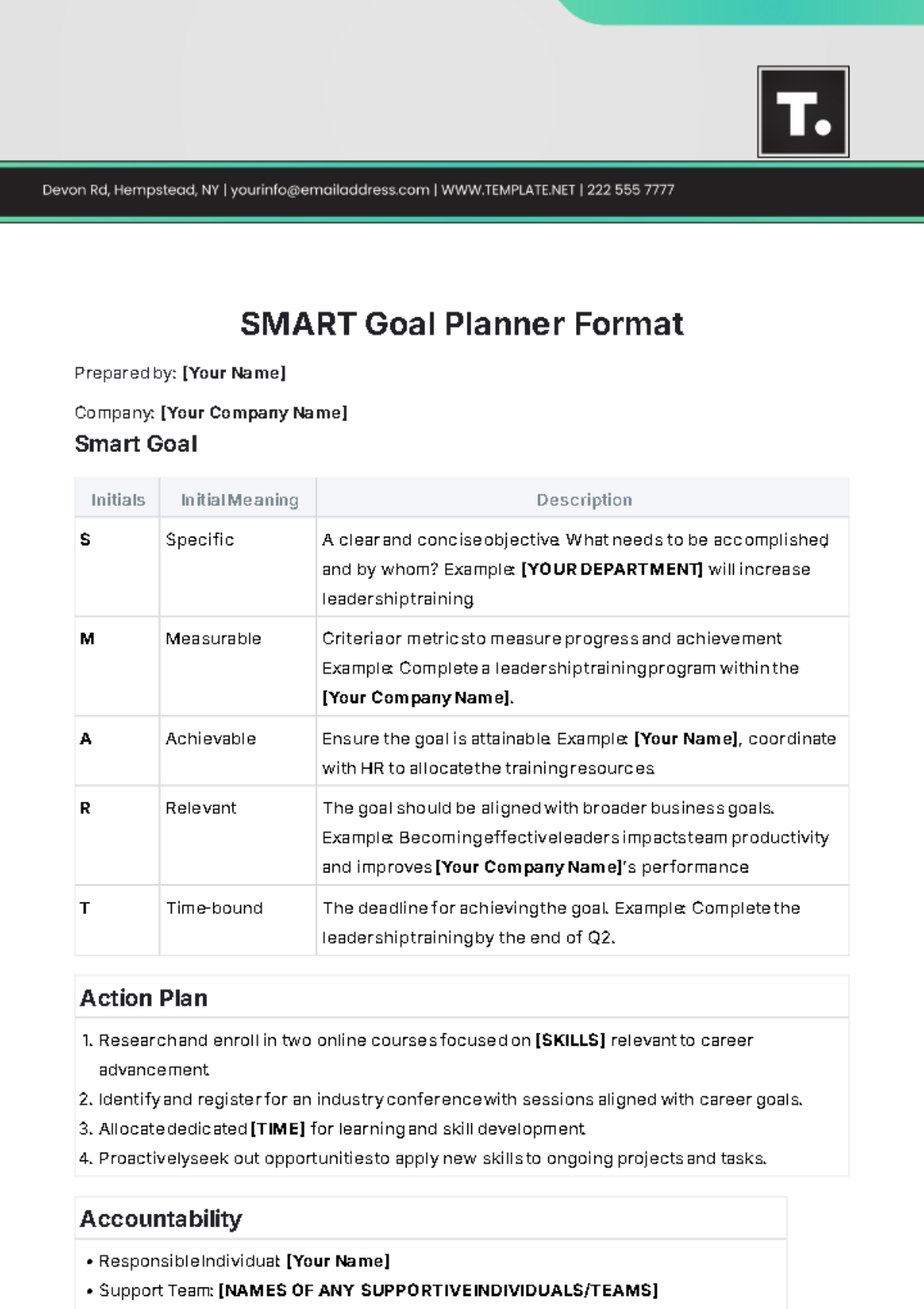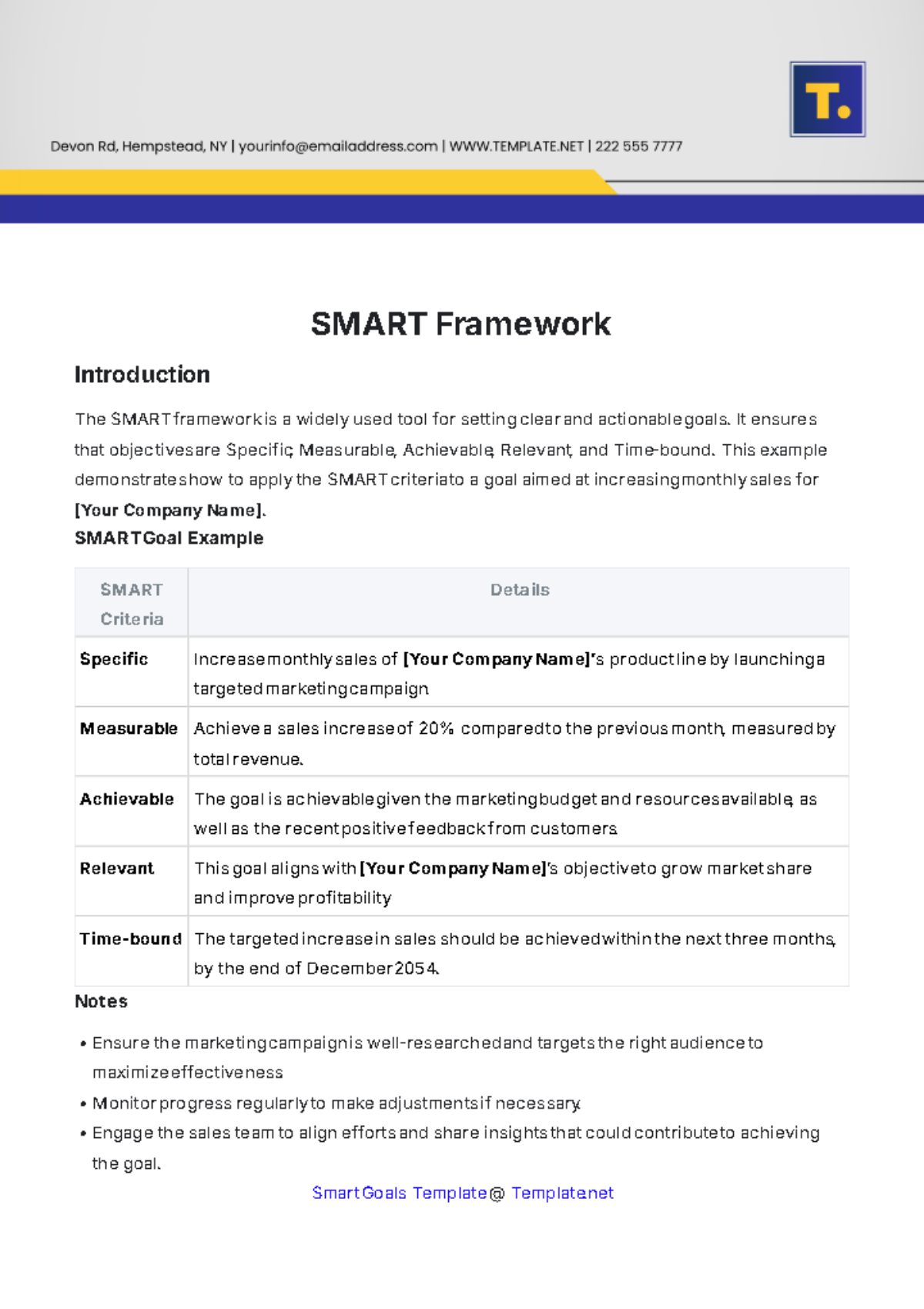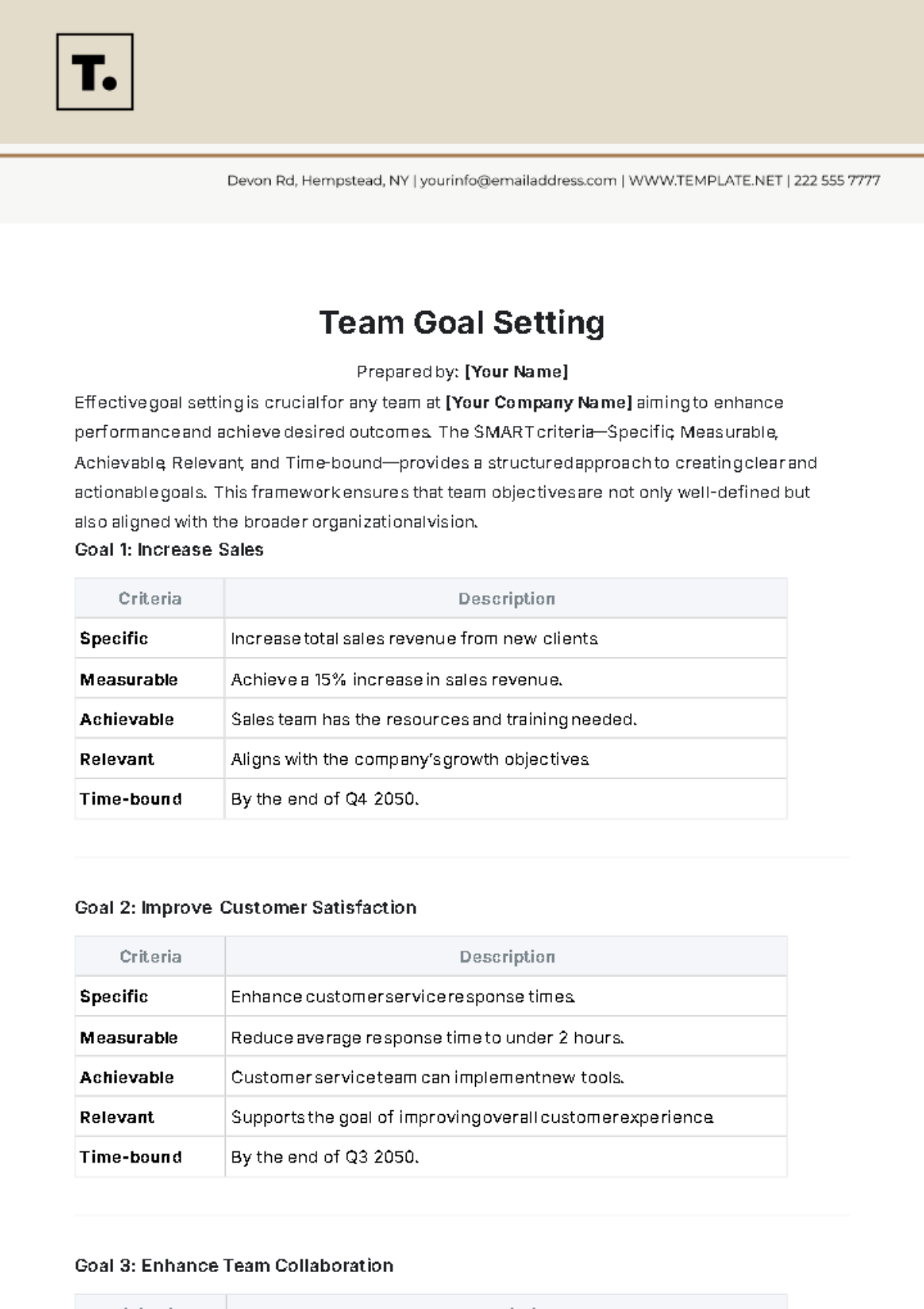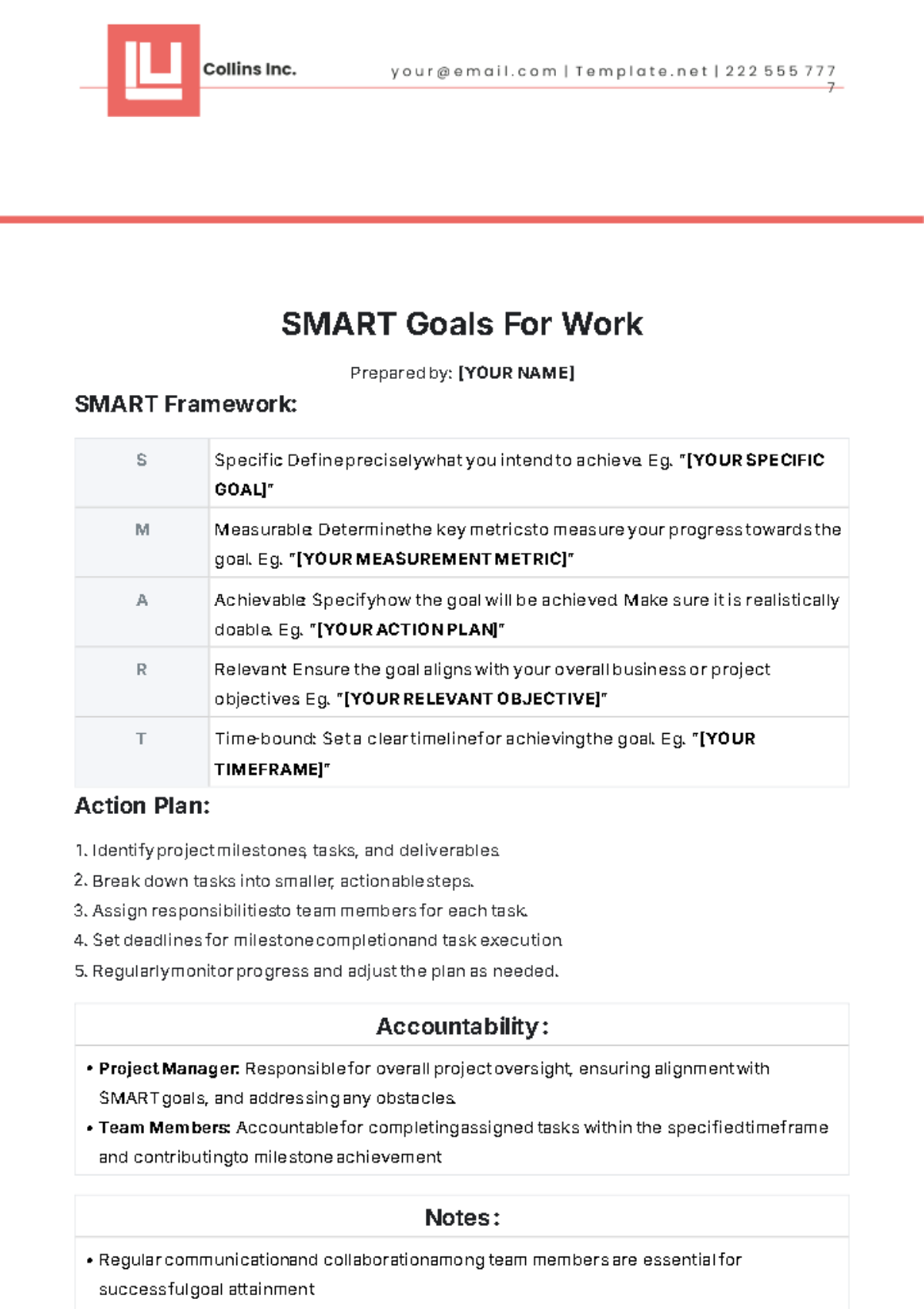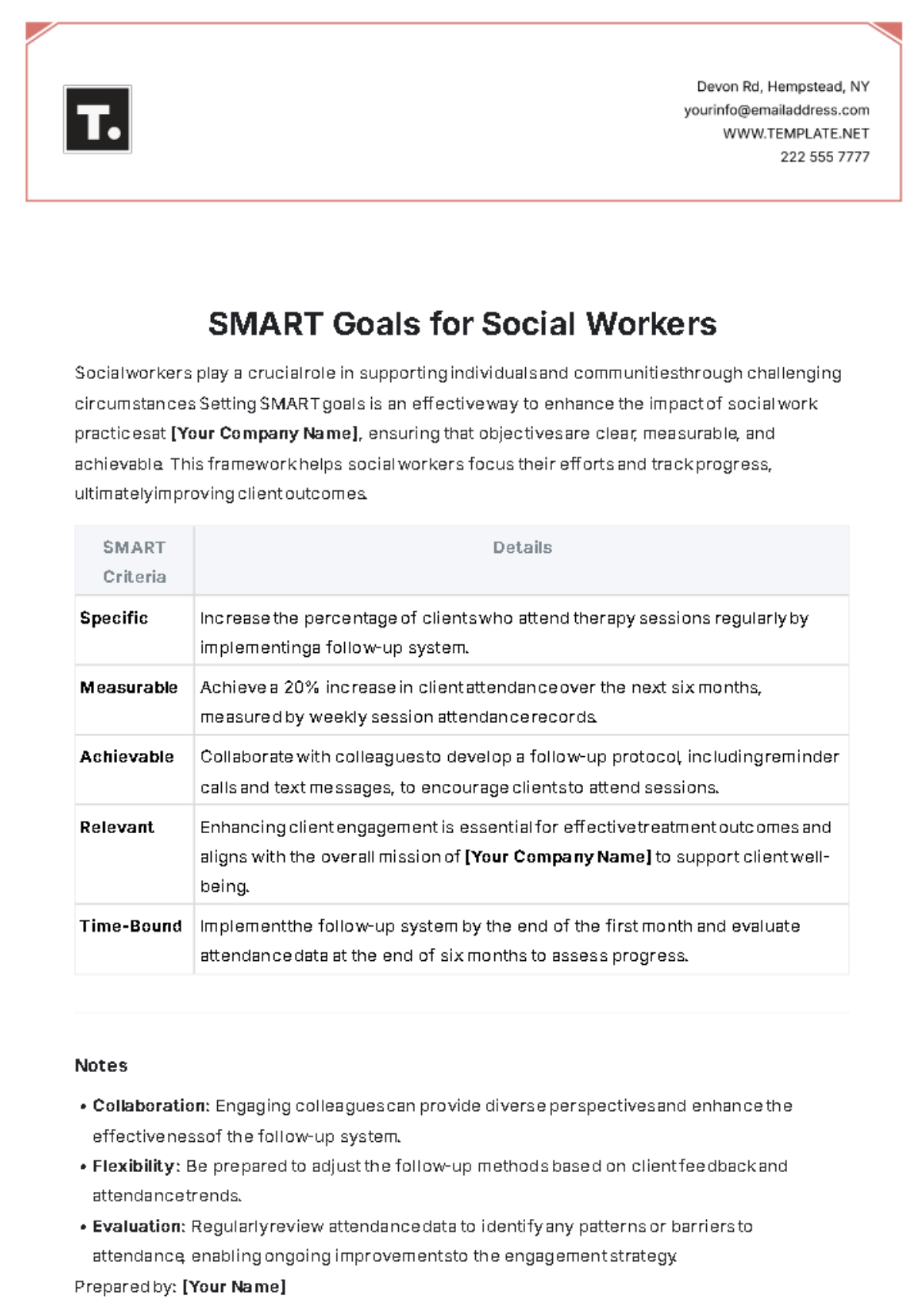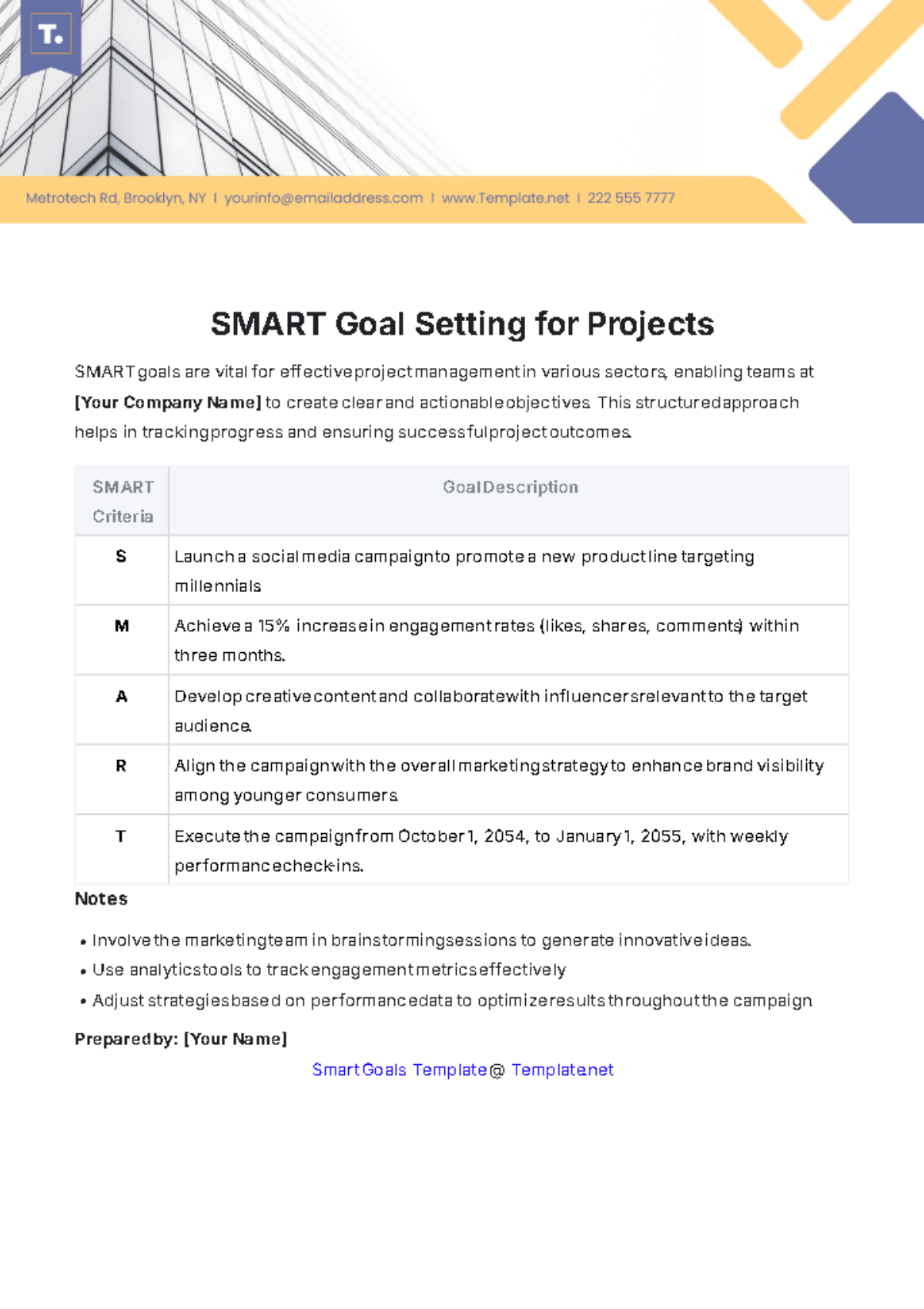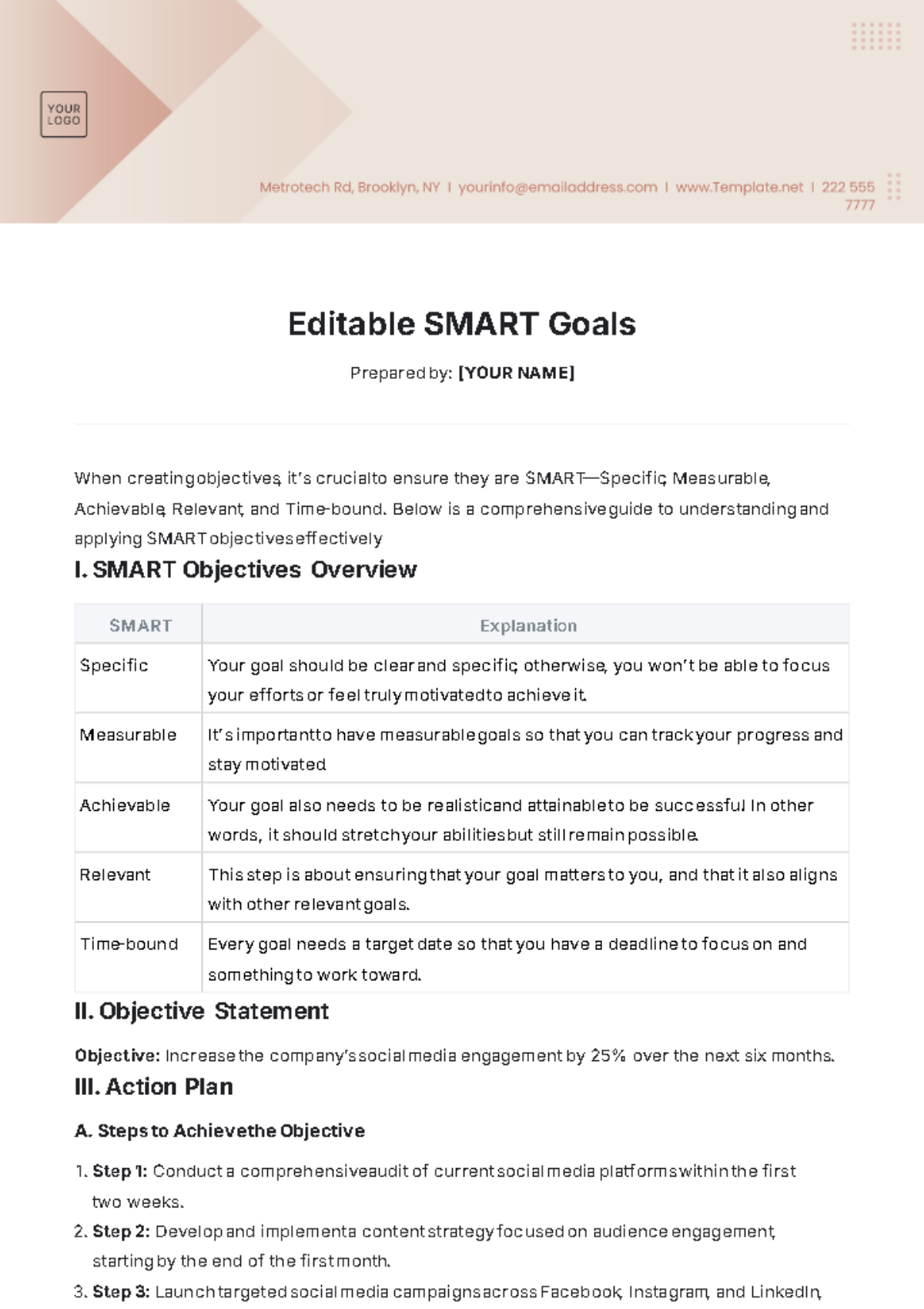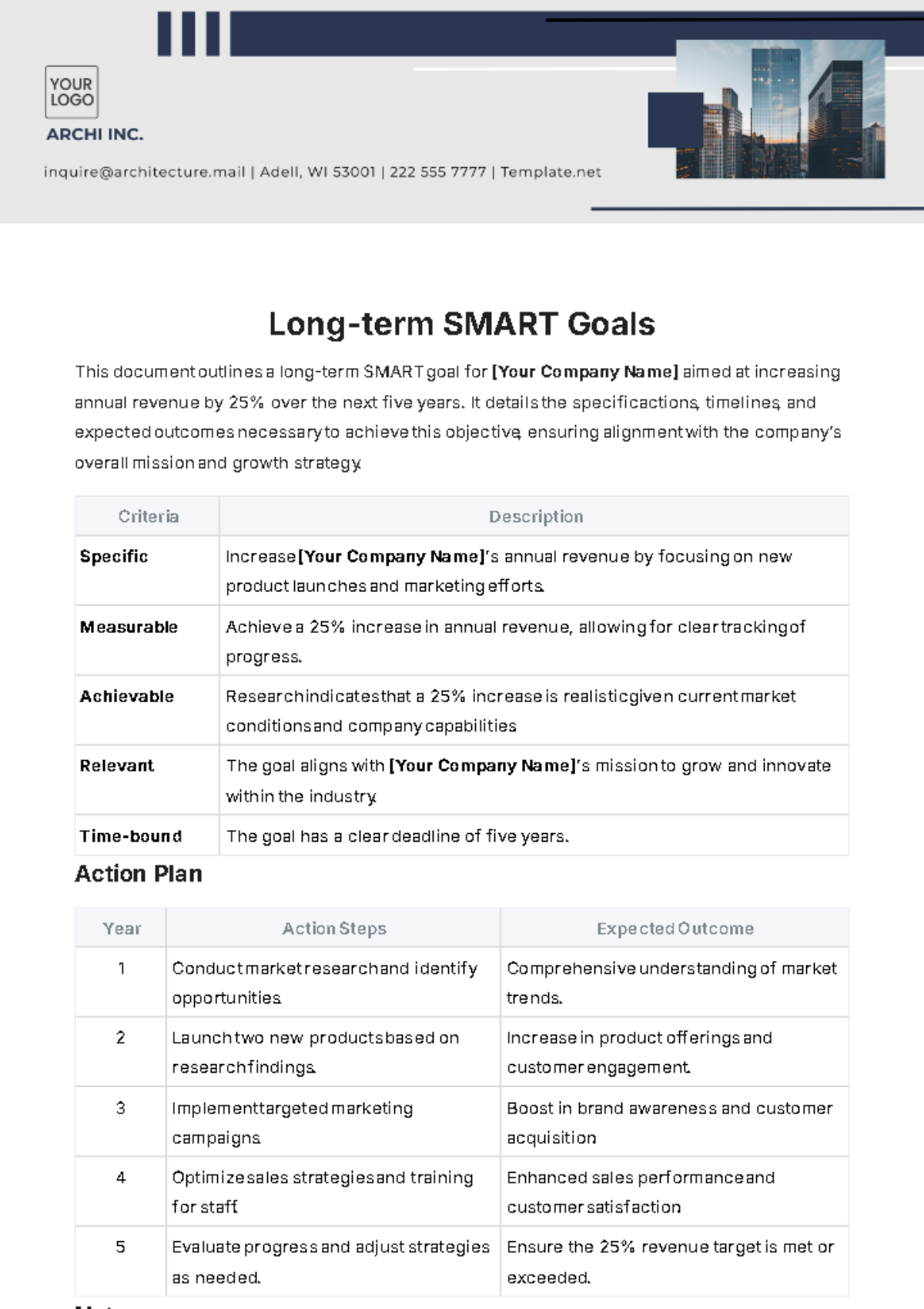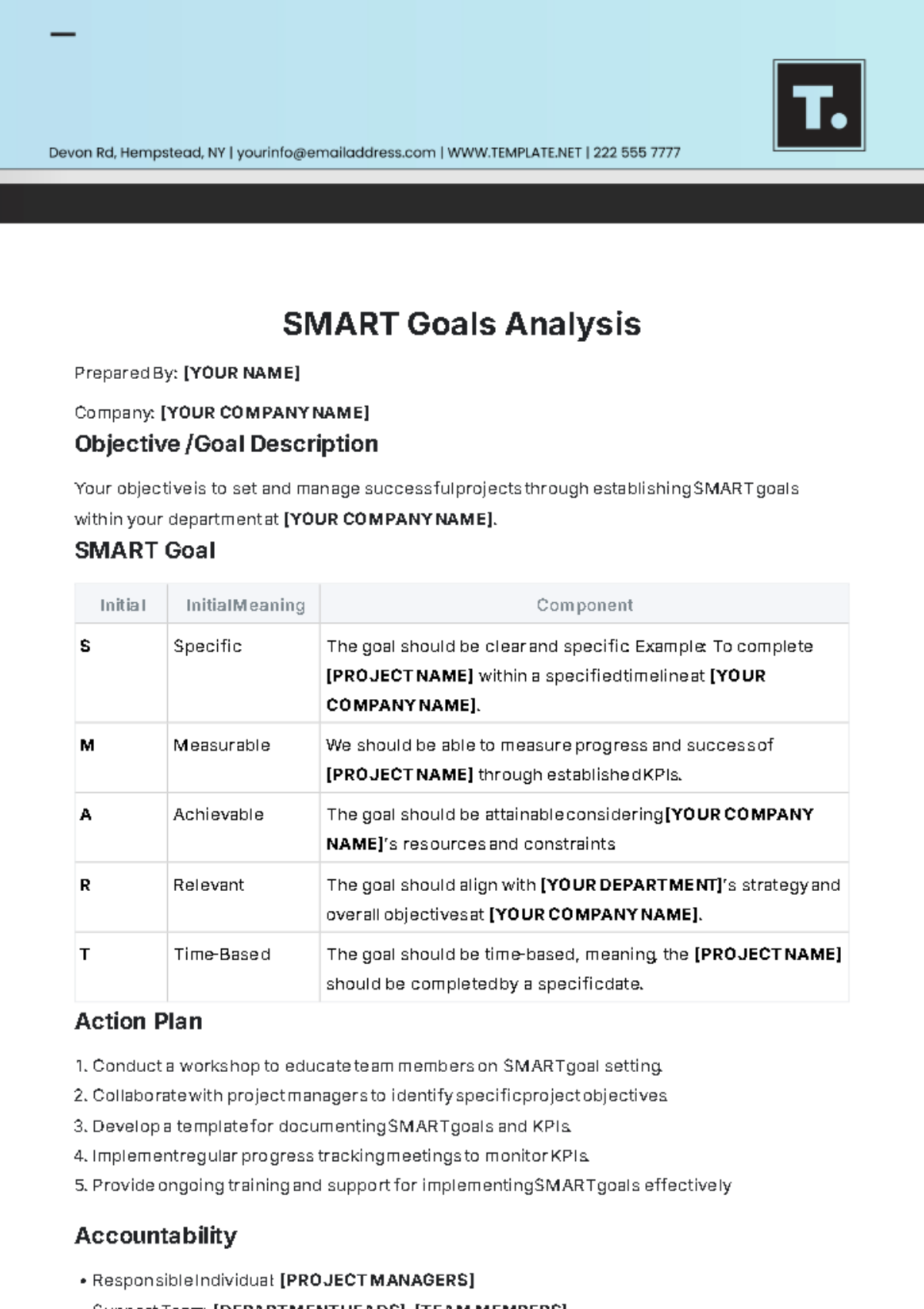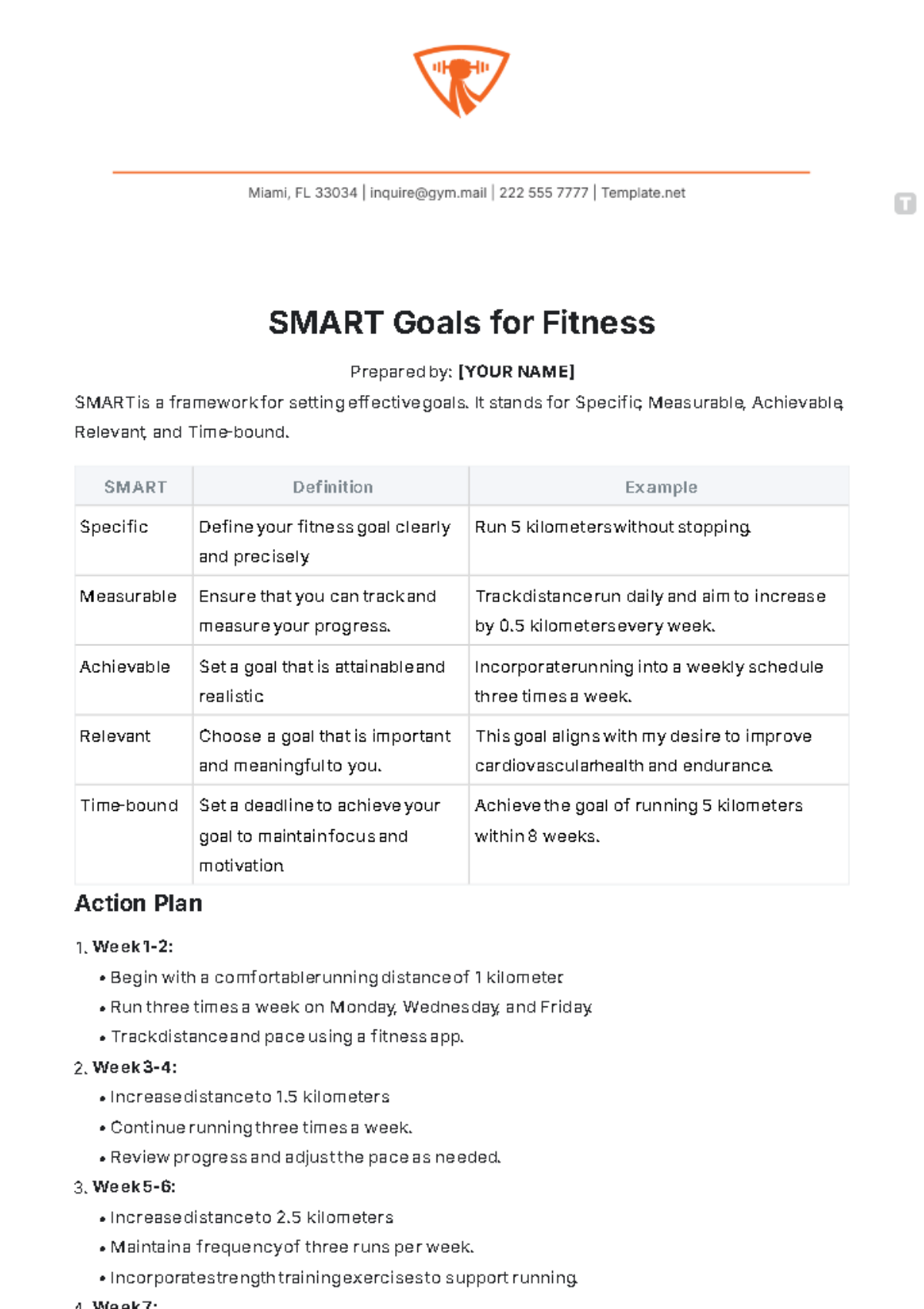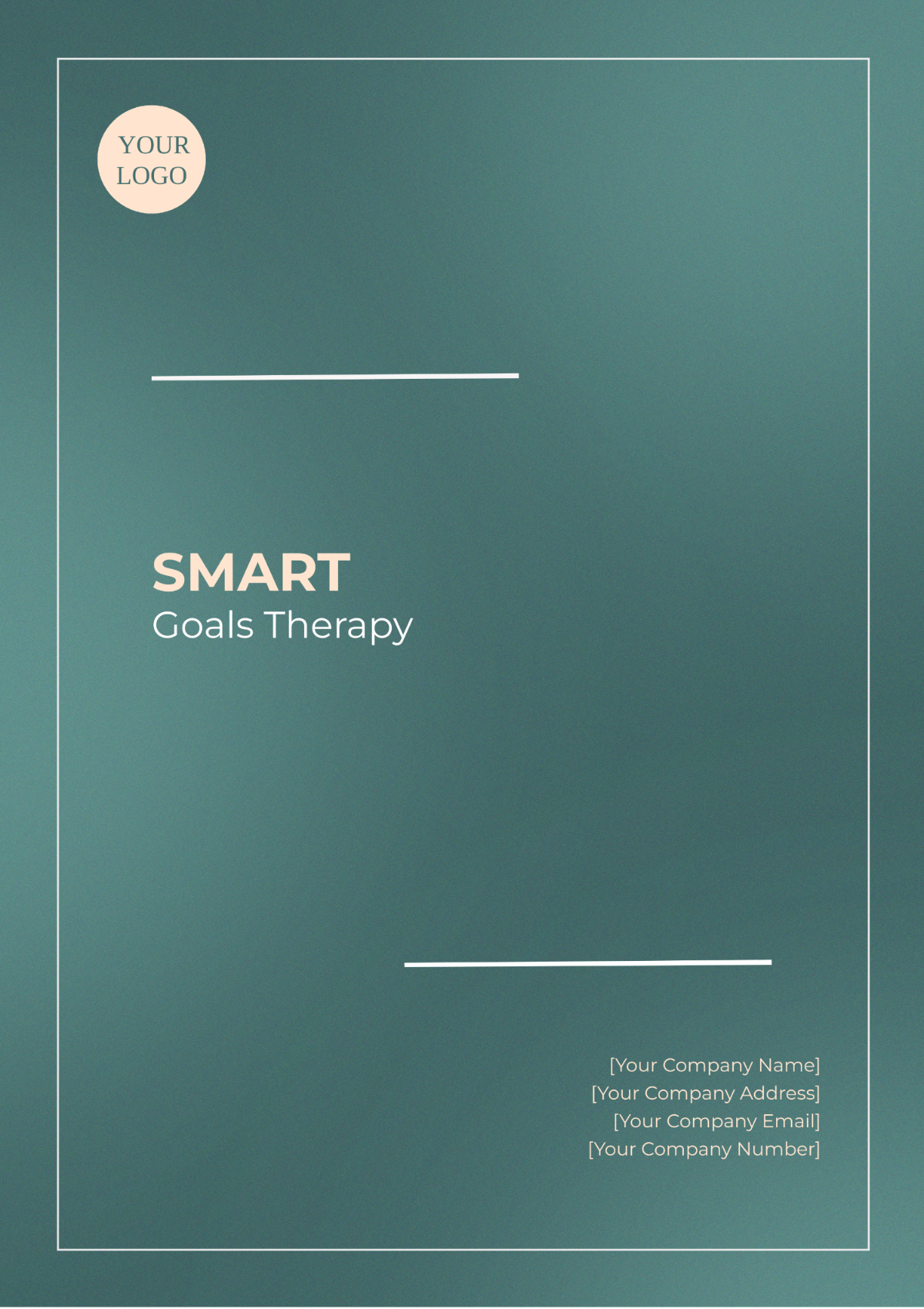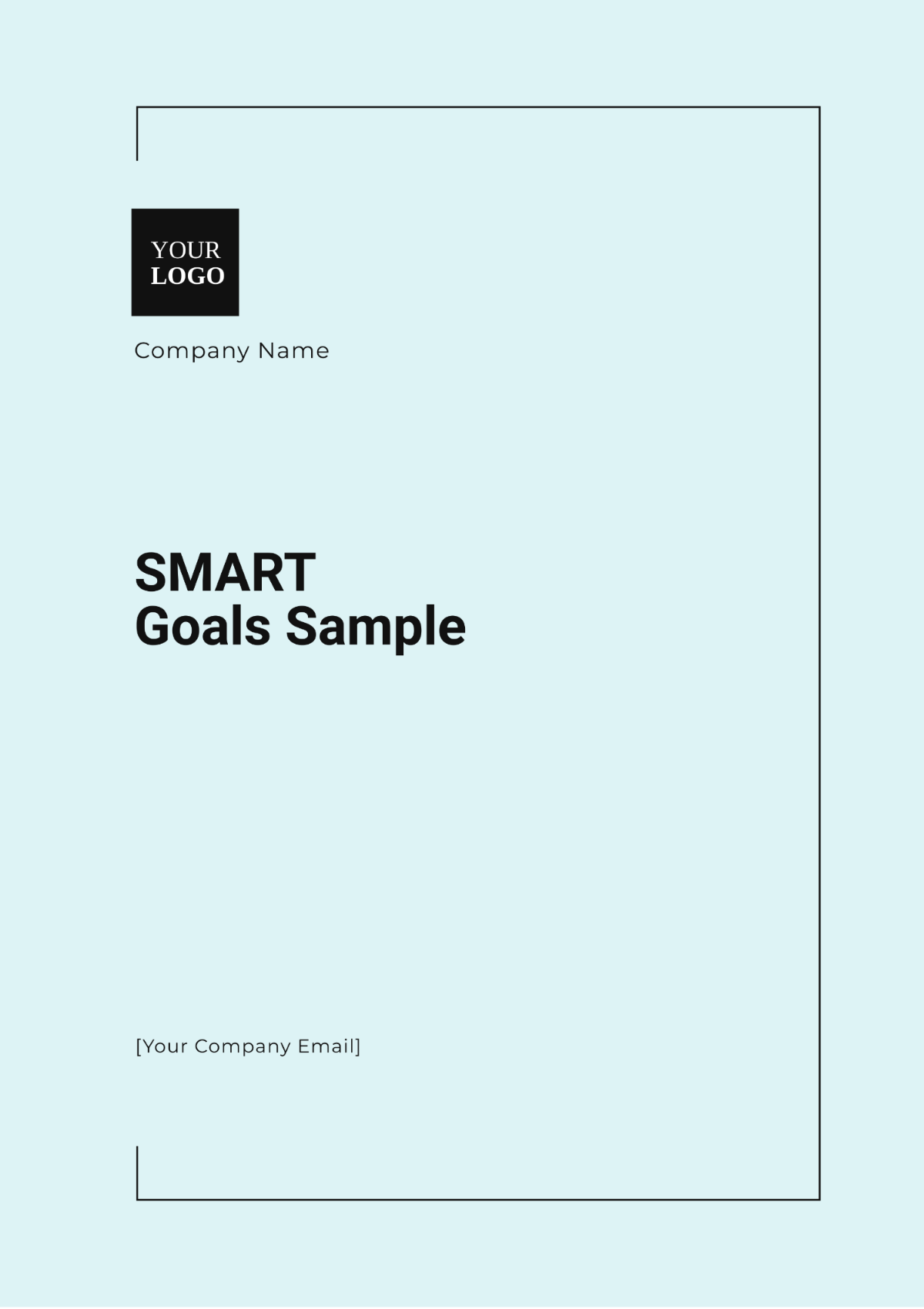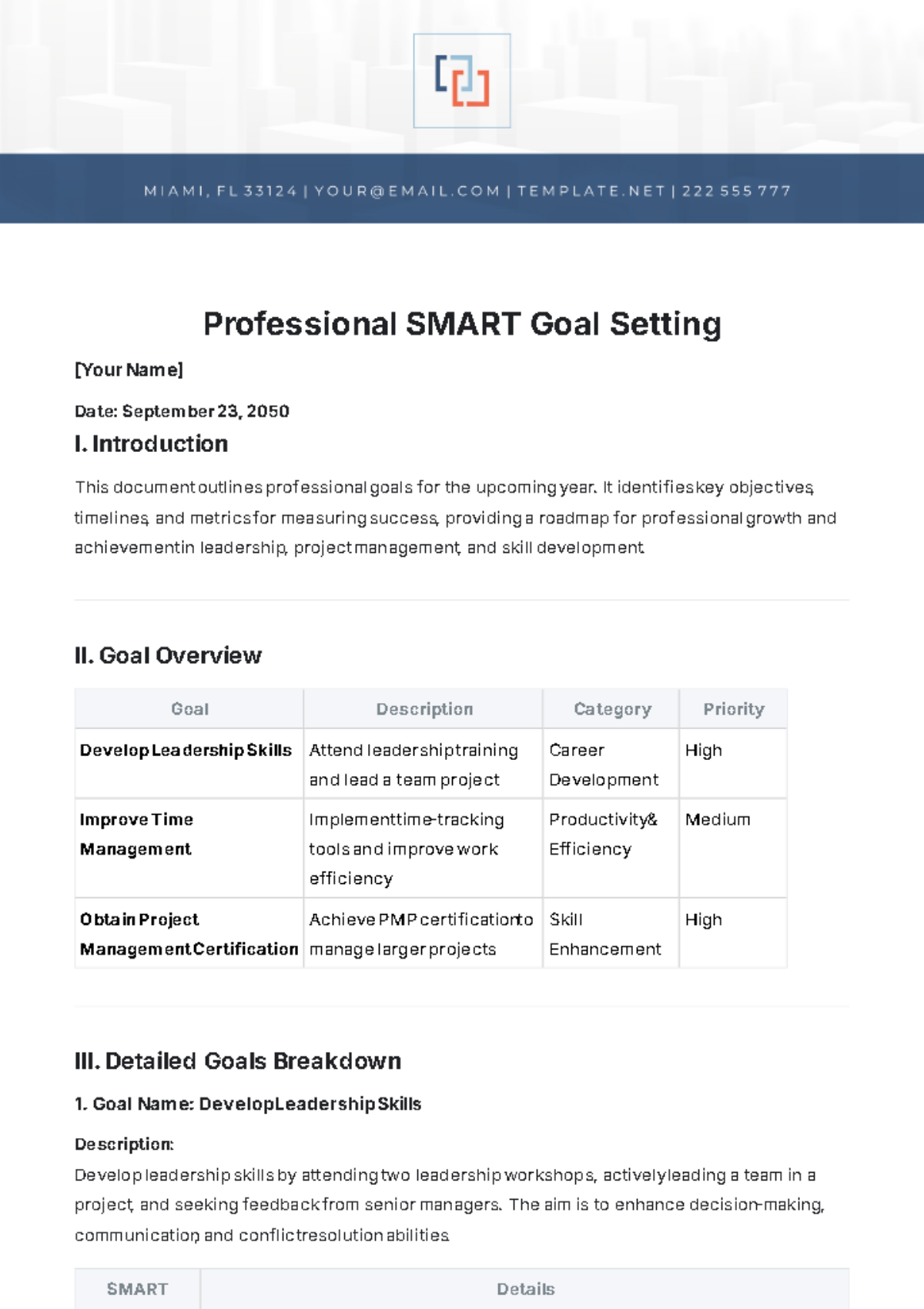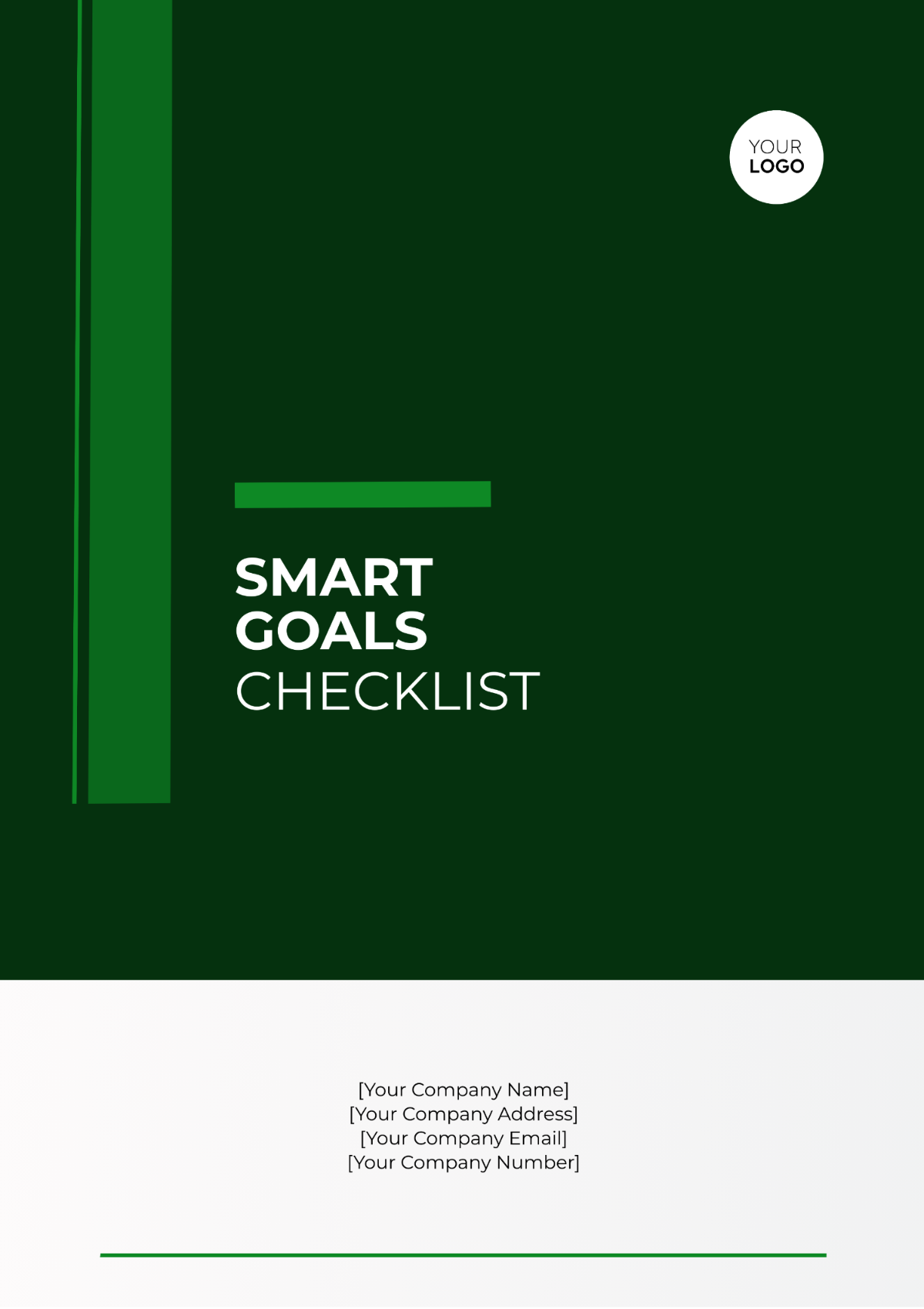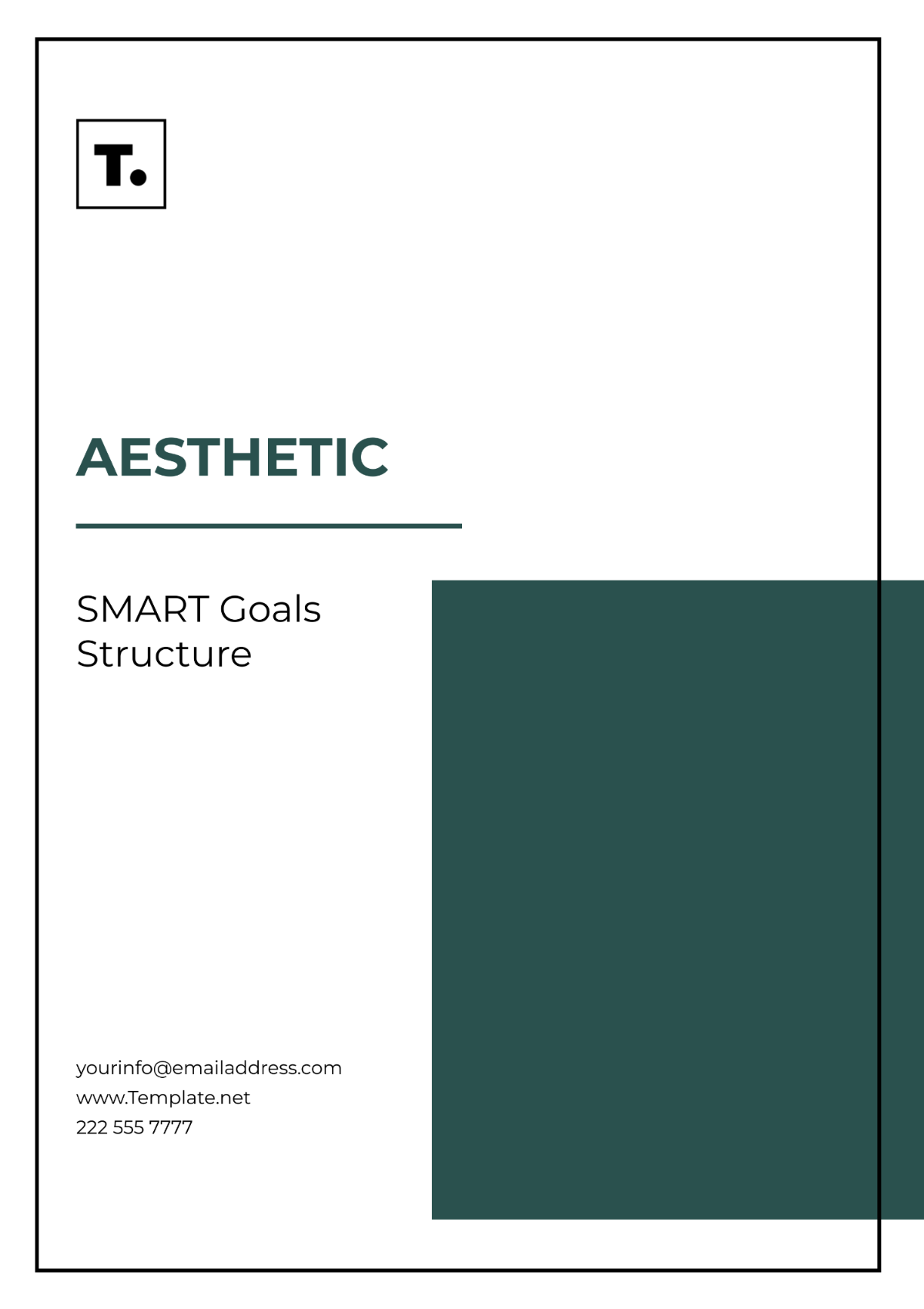Editable SMART Goals
Prepared by: [YOUR NAME]
When creating objectives, it's crucial to ensure they are SMART—Specific, Measurable, Achievable, Relevant, and Time-bound. Below is a comprehensive guide to understanding and applying SMART objectives effectively.
I. SMART Objectives Overview
SMART | Explanation |
|---|---|
Specific | Your goal should be clear and specific, otherwise, you won't be able to focus your efforts or feel truly motivated to achieve it. |
Measurable | It's important to have measurable goals so that you can track your progress and stay motivated. |
Achievable | Your goal also needs to be realistic and attainable to be successful. In other words, it should stretch your abilities but still remain possible. |
Relevant | This step is about ensuring that your goal matters to you, and that it also aligns with other relevant goals. |
Time-bound | Every goal needs a target date so that you have a deadline to focus on and something to work toward. |
II. Objective Statement
Objective: Increase the company’s social media engagement by 25% over the next six months.
III. Action Plan
A. Steps to Achieve the Objective
Step 1: Conduct a comprehensive audit of current social media platforms within the first two weeks.
Step 2: Develop and implement a content strategy focused on audience engagement, starting by the end of the first month.
Step 3: Launch targeted social media campaigns across Facebook, Instagram, and LinkedIn, beginning in month two.
Step 4: Regularly analyze engagement metrics and adjust strategies as needed, starting in month three.
B. Resources Required
Social media management tools (e.g., Hootsuite), graphic design software, budget for paid promotions, and content creation team.
C. Timeline
Social Media Audit: Complete by September 15, 2050.
Content Strategy Development: Complete by October 1, 2050.
Campaign Launch: Start by November 1, 2050.
Ongoing Analysis and Adjustment: Begin by December 1, 2050.
IV. Accountability
A. Responsible Parties
Social Media Manager: Responsible for the overall execution of the plan.
Content Creation Team: Responsible for developing and scheduling content.
Marketing Analyst: Responsible for tracking and analyzing engagement metrics.
B. Check-in Points
Initial Review: September 30, 2050
Mid-point Review: November 30, 2050
Final Review: February 28, 2051
C. Evaluation Criteria
Increase in likes, shares, and comments on social media posts.
Growth in follower count across all platforms.
Improvement in click-through rates on social media ads.
V. Notes
Potential Challenges
Fluctuations in social media algorithms that could impact engagement.
Budget constraints for paid promotions.
Additional Comments
Consider collaboration with influencers to boost engagement.
VI. Progress Tracking
Milestone 1: Completion of the social media audit by September 15, 2050.
Milestone 2: Launch of the first targeted campaign by November 1, 2050.
Final Review Date: February 28, 2051
VII. Final Assessment
Achievement Status: Goal achieved. Social media engagement increased by 27% by the end of February 2051.
Lessons Learned: Regular content updates and interaction with followers significantly boosted engagement. Paid promotions yielded a high return on investment.
Next Steps: Continue with the current strategy and explore expanding the campaign to new social media platforms like TikTok.
